This is the second part of a 2-day camping trip, but such is the difference in the two days I thought it best to divide into two posts.
The previous day I’d become engrossed in the green nooks of Conachcraig (article to follow), and this had hindered distance towards the planned target of Braemar. The planned route ahead included some rough off-path terrain; the blazing morning sun was already hot as I decamped. A less strenuous plan B was concocted: I’d avoid the jubilee tourist swarms on the main ascent, checking out a path around the side, then make my way towards the site of camping back in March, and possibly see if there was any snow left and if I could find a lost ice-axe. Depending on time, I’d maybe take an easier route to Braemar or bail down to Ballochbuie.
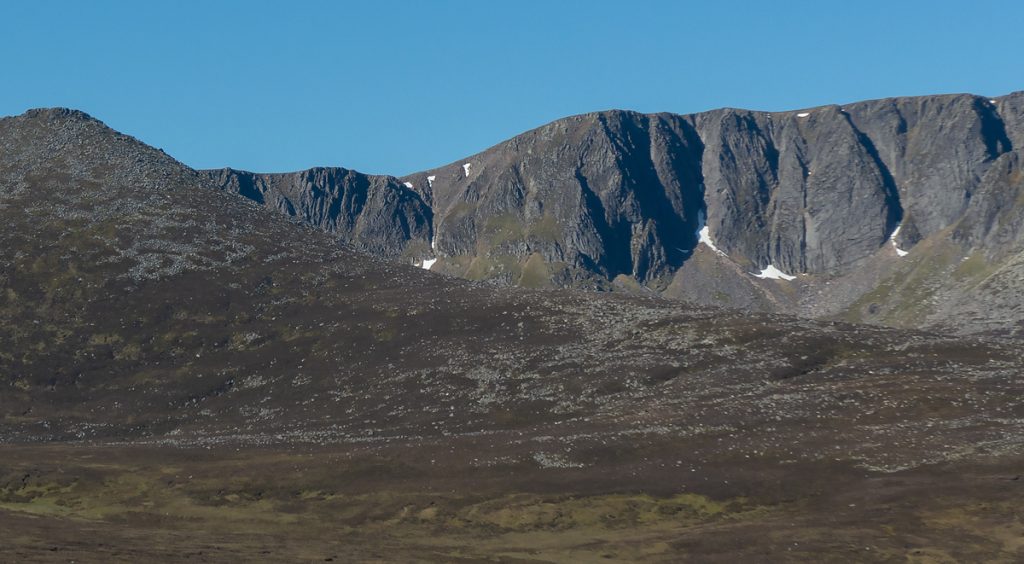
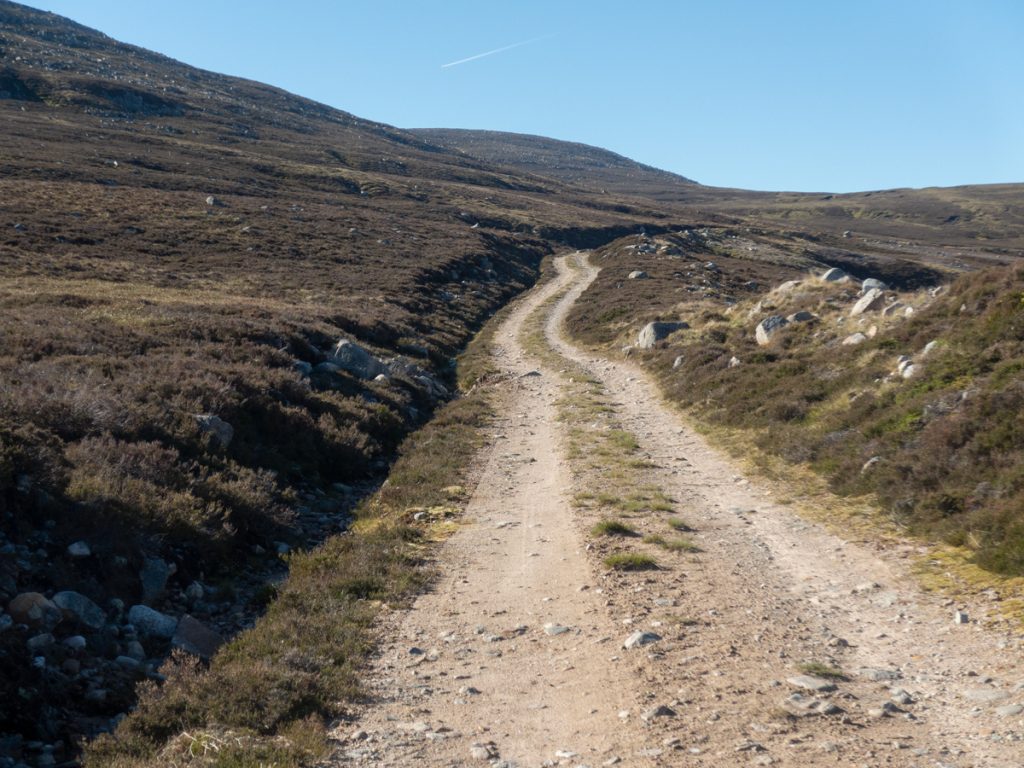
Below Conachcraig I diverged from the tourist path and took the path that loops round to the Glas Allt footbridge.
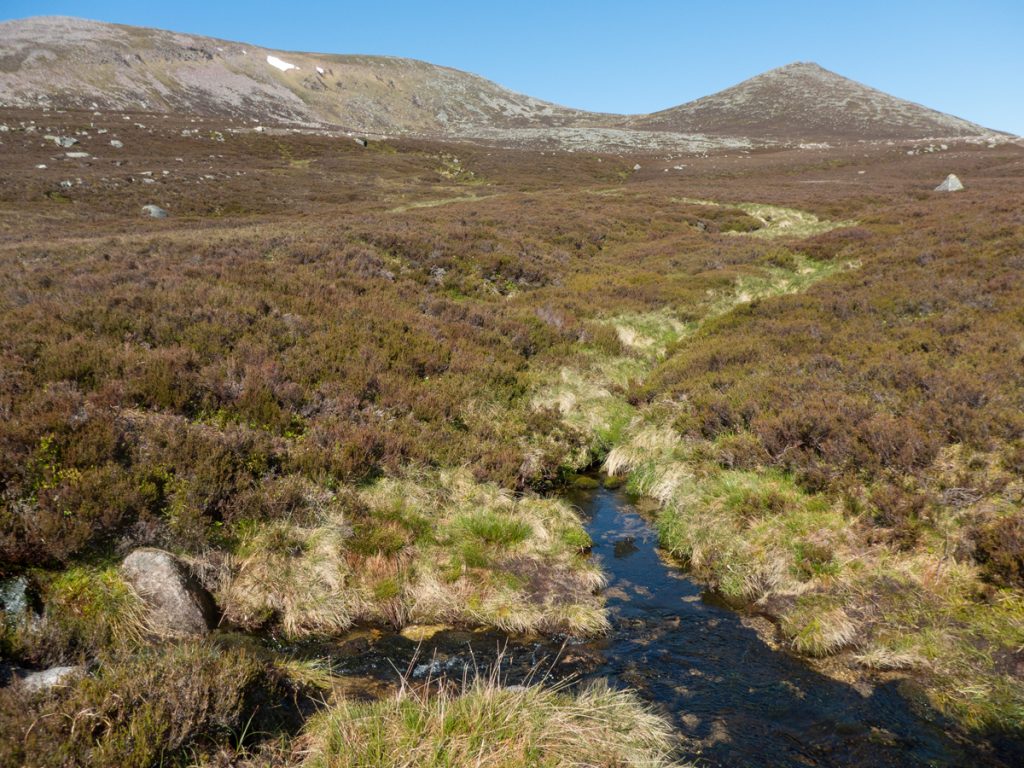
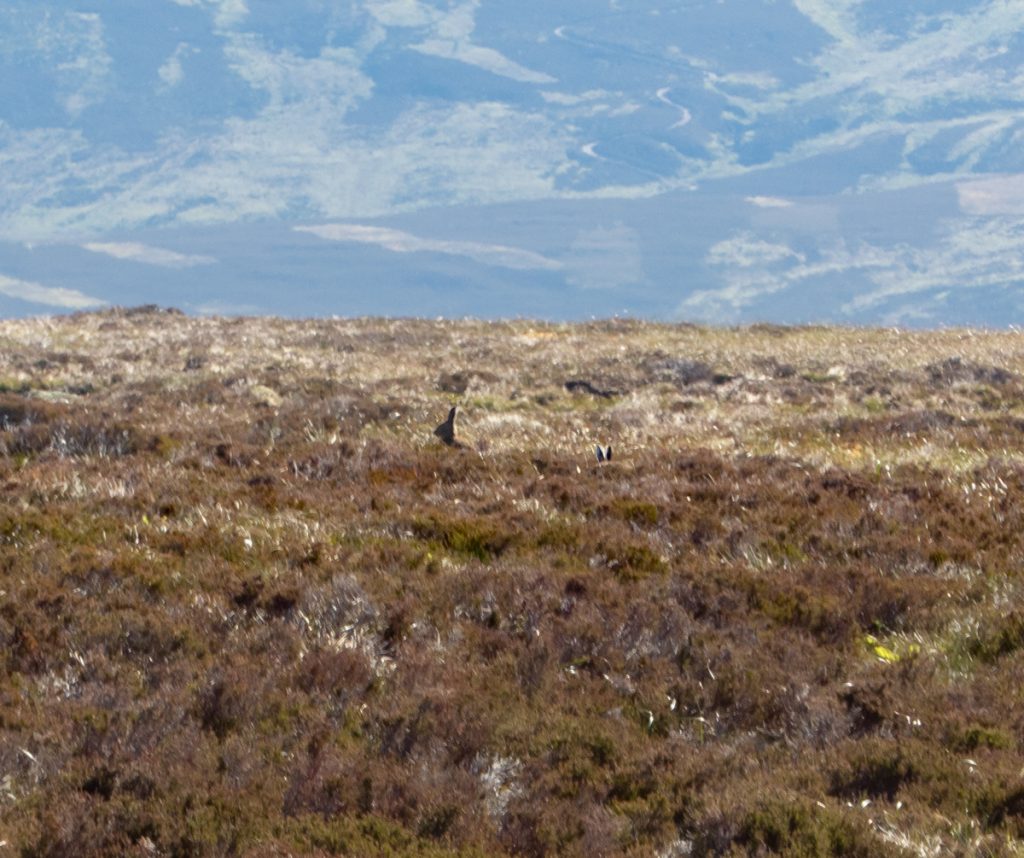
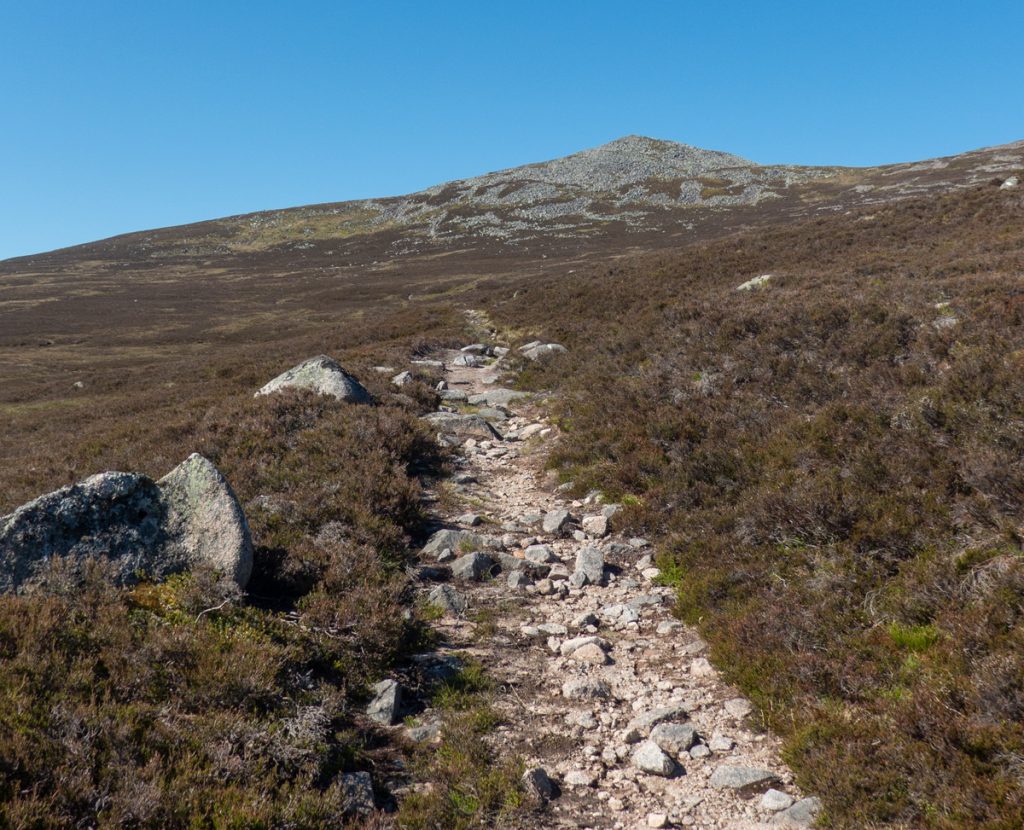
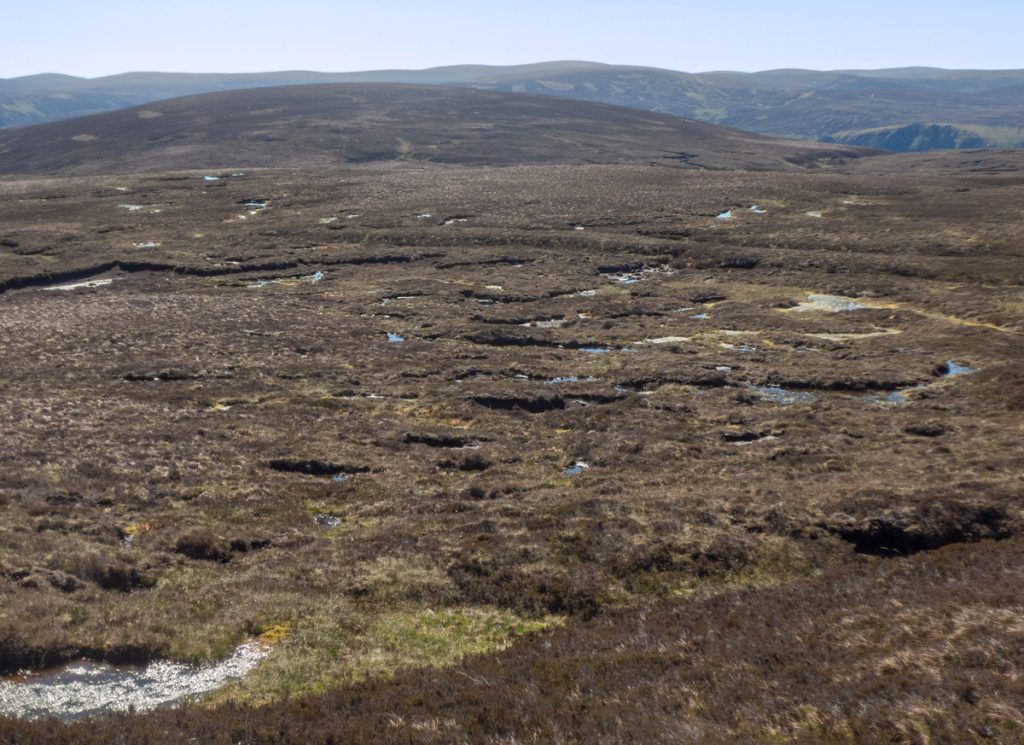
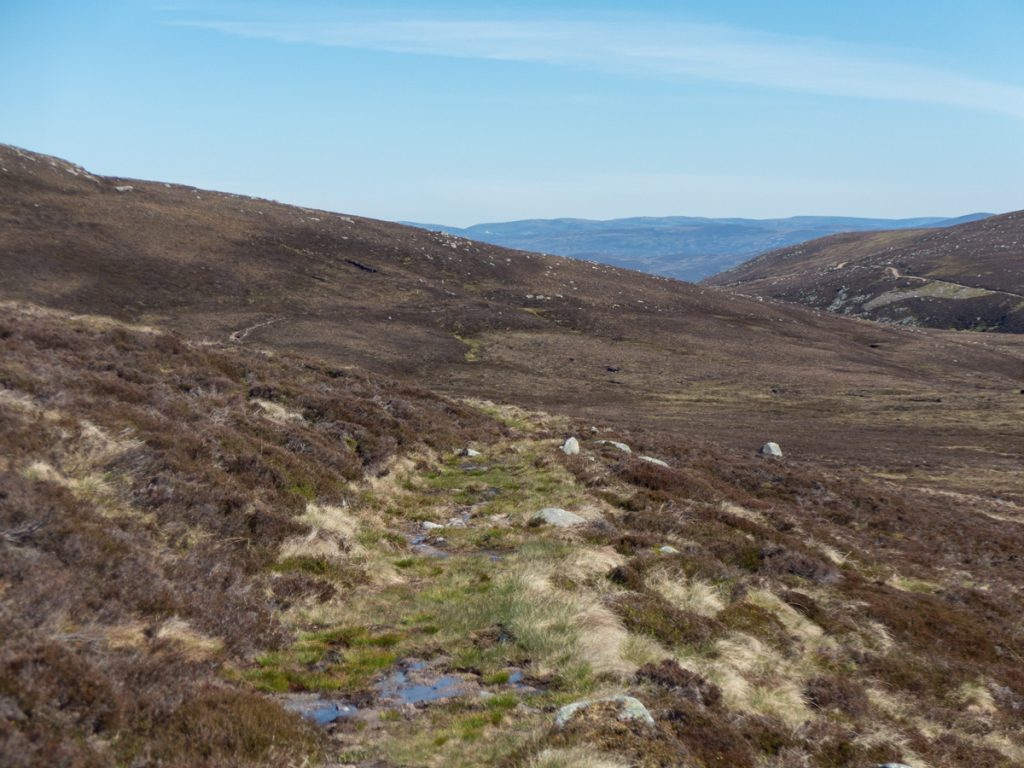
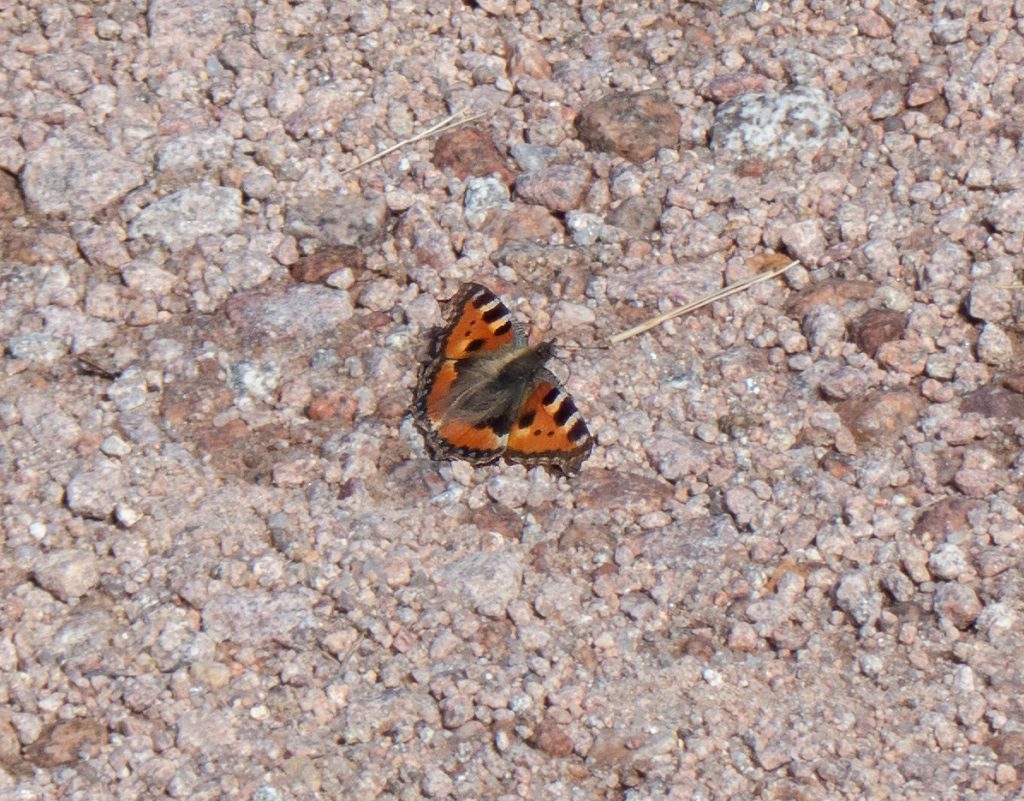
I was sweating profusely in the heat and filled my ‘katadyn befree’ filter bottle a few times from small streams. I noticed on a snow patch above that deer were congregating presumably to get some relief from the heat.
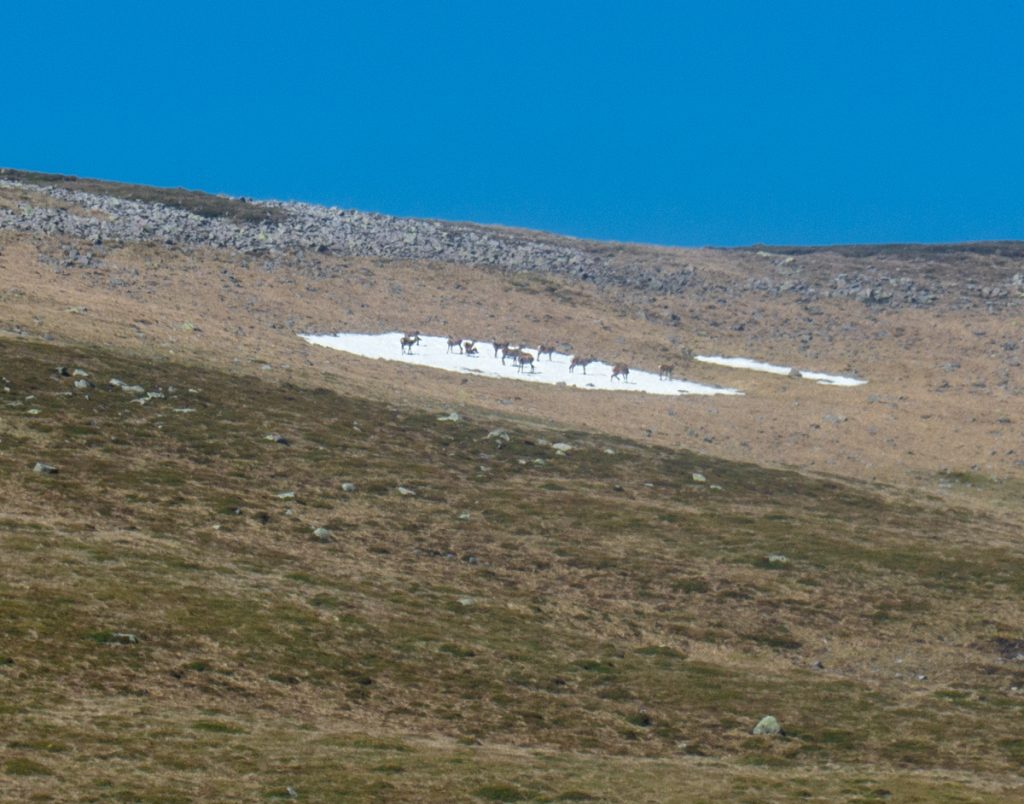
The path met the Glas Allt trail, and I followed it up until the stream forked below the water cascaded over some slabs. There’s a scrape of an old path that fizzles out, then it was lumping it over rough heather towards the stream from Coire an Daimh Mhoile. I made for a nice waterfall which was a good spot for a break, before ascending upstream – in a couple places the side gets quite steep or eroded, but a jump to the the other bank enabled progress.
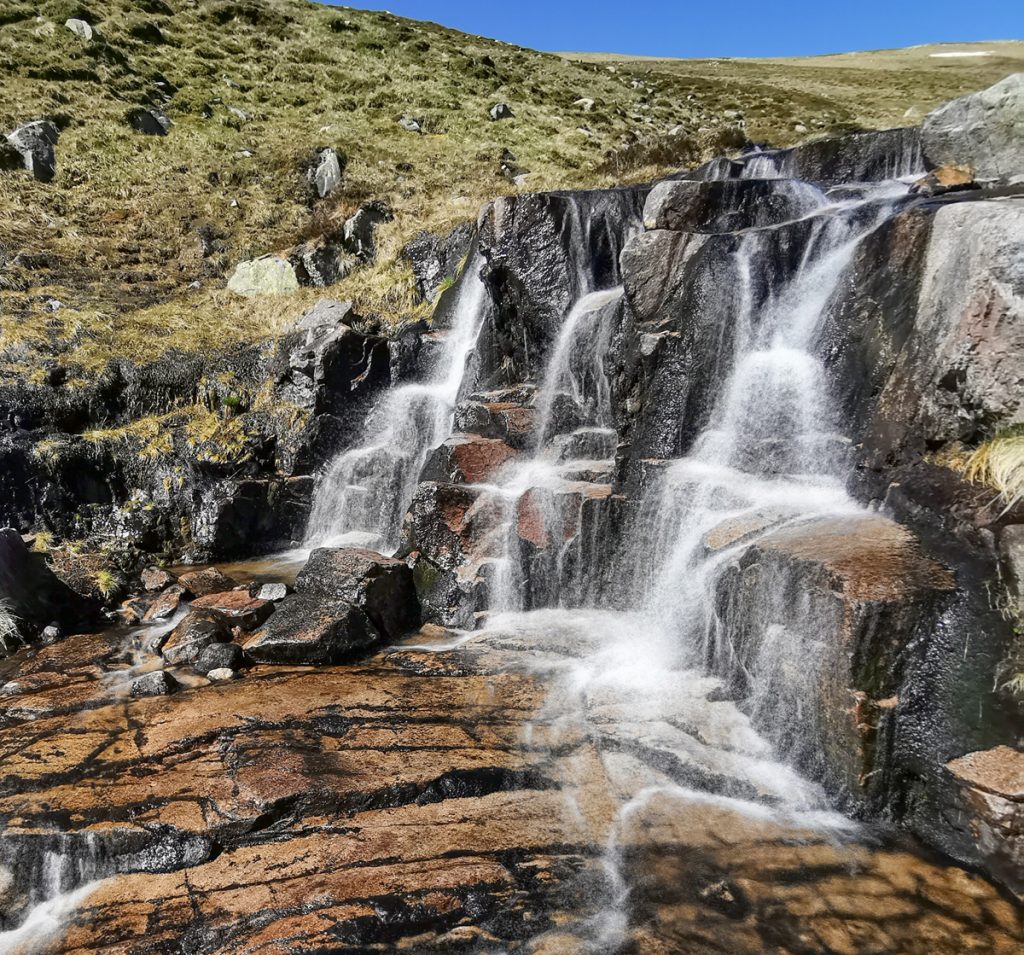
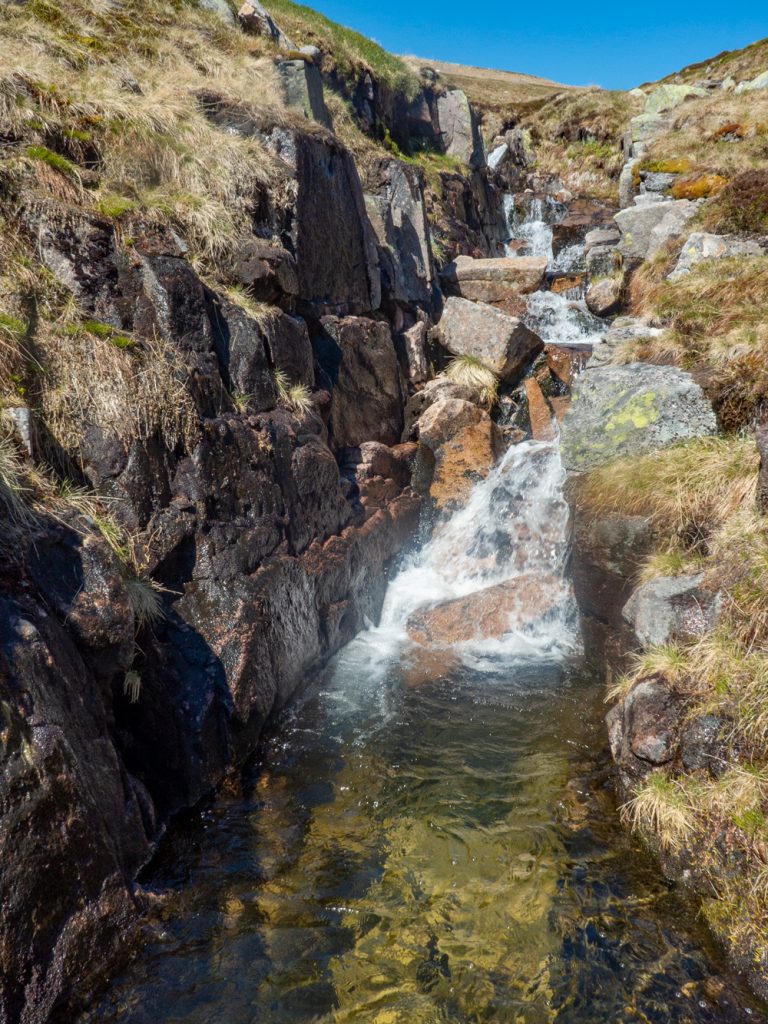
Arriving at Coire an Daimh Mhoile’s “deep snow” spot (where the 1000m contour crosses it) and where in a past trip I’d avoided a massive cornice, it looked like there was still a good chunk of a drift, and maybe possibilities for a snow tunnel. Noting the chunk that had collapsed which hadn’t happened today (rounded edges), I tentatively looked under where the stream emerged: enough room to clamber in, and looked solid enough in structure and ‘roof support’. Nonetheless, I sent a satellite message from my garmin inreach mini to a friend as I’d deviated from the planned route “Checking out tunnel here will note ok 1hr”.
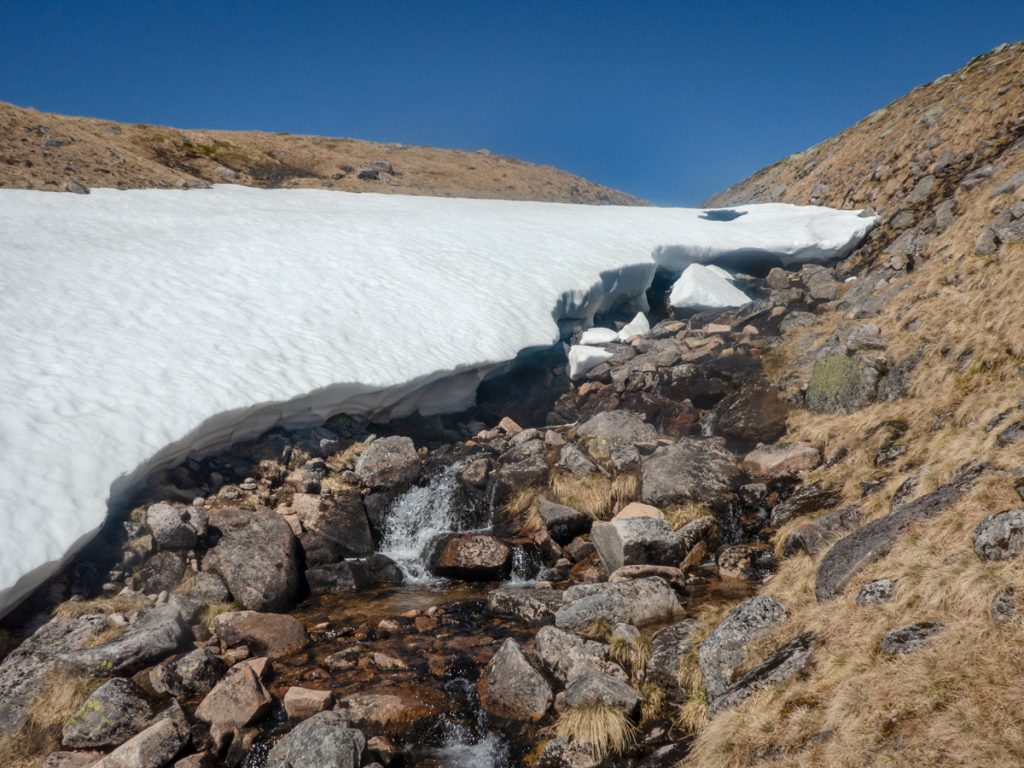
Wow.. ducking out of the blazing sun and barren moor, into the sculpted shapes and aquamarine hues of the tunnels was like entering another world..
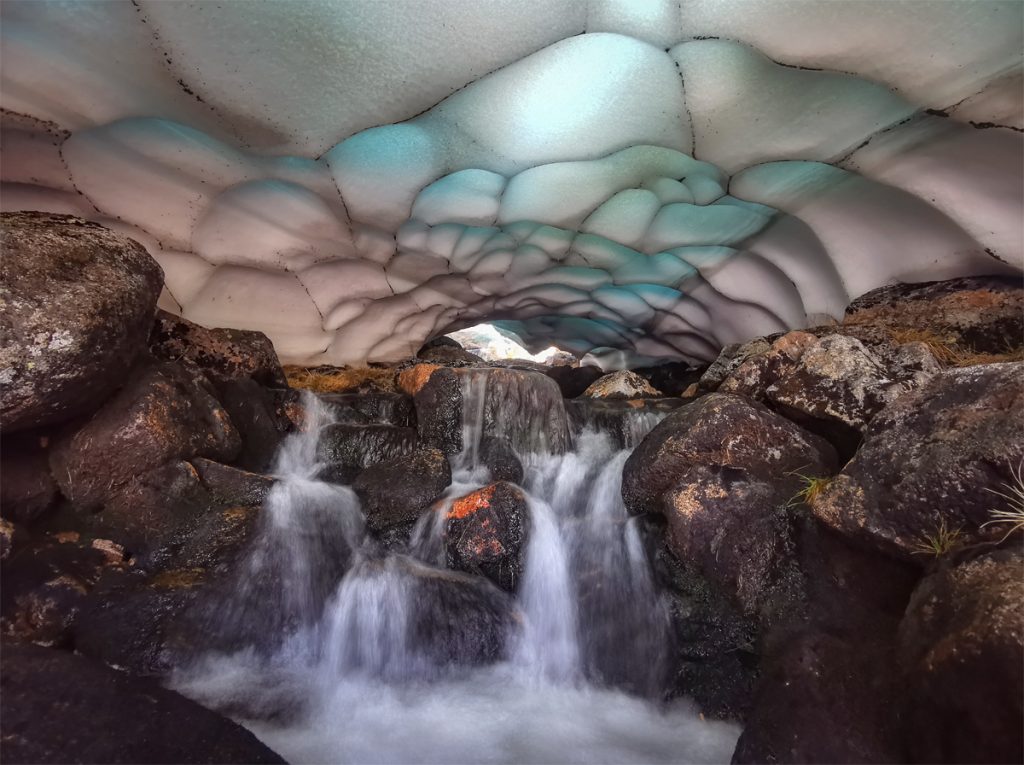
The roof shapes are referred to as ‘ablation hollows’. Dirt in the snow migrates and concentrates at the edges and possibly reinforces resistance to melting via adding an extra element of insulation to heat transfer from the stream. Whatever the mechanism is, it looks good.
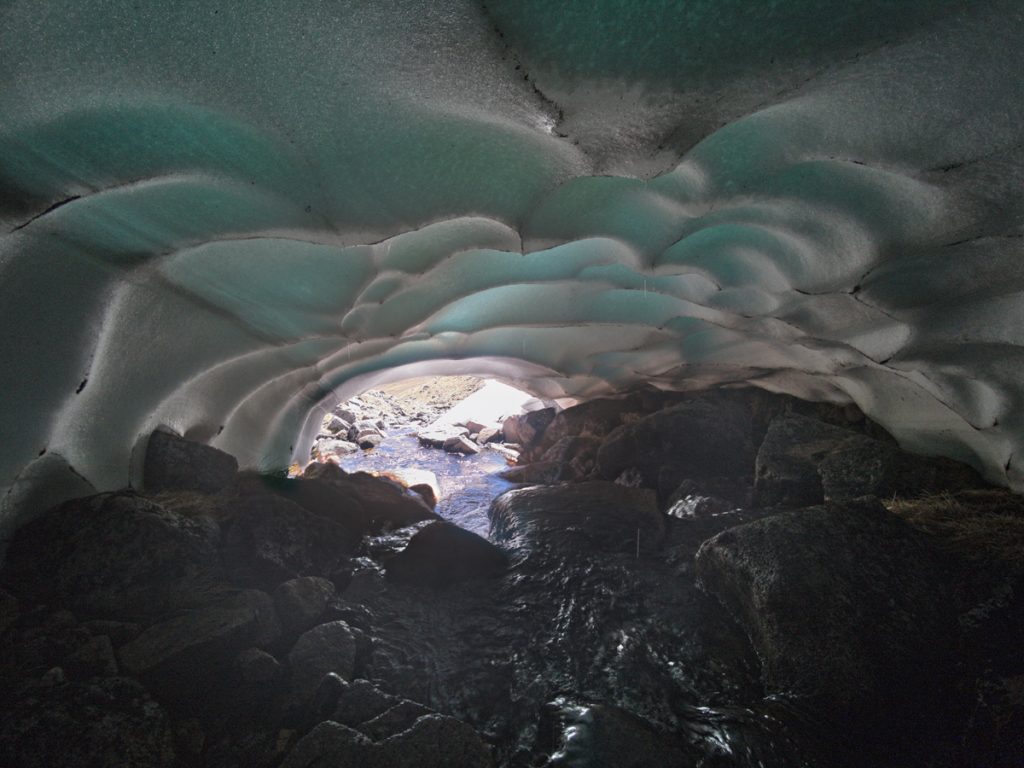
The cool inside the tunnel was delicious after slogging up the rugged stream banks. The space inside was navigable crouching, but certainly not dry: water was dripping from the roof, and splashing from the stream, and the rocks were slippery: feet, hands, knees and bum all got a soaking as I crept in further, but with the scorcher outside I wasn’t fussed.
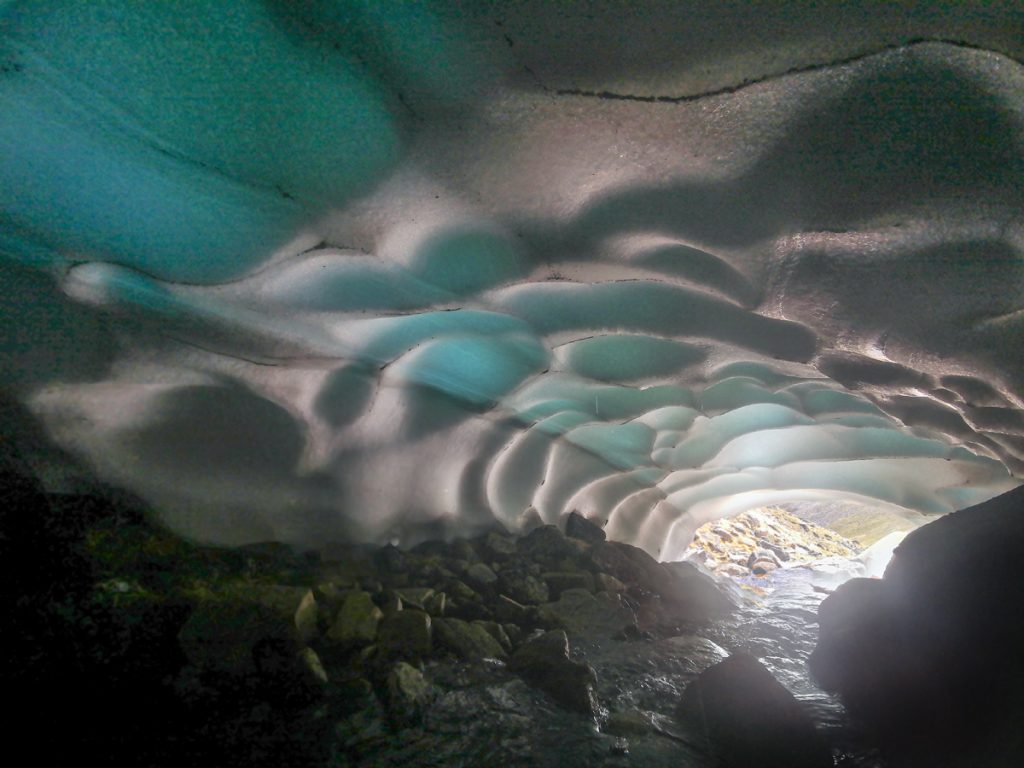
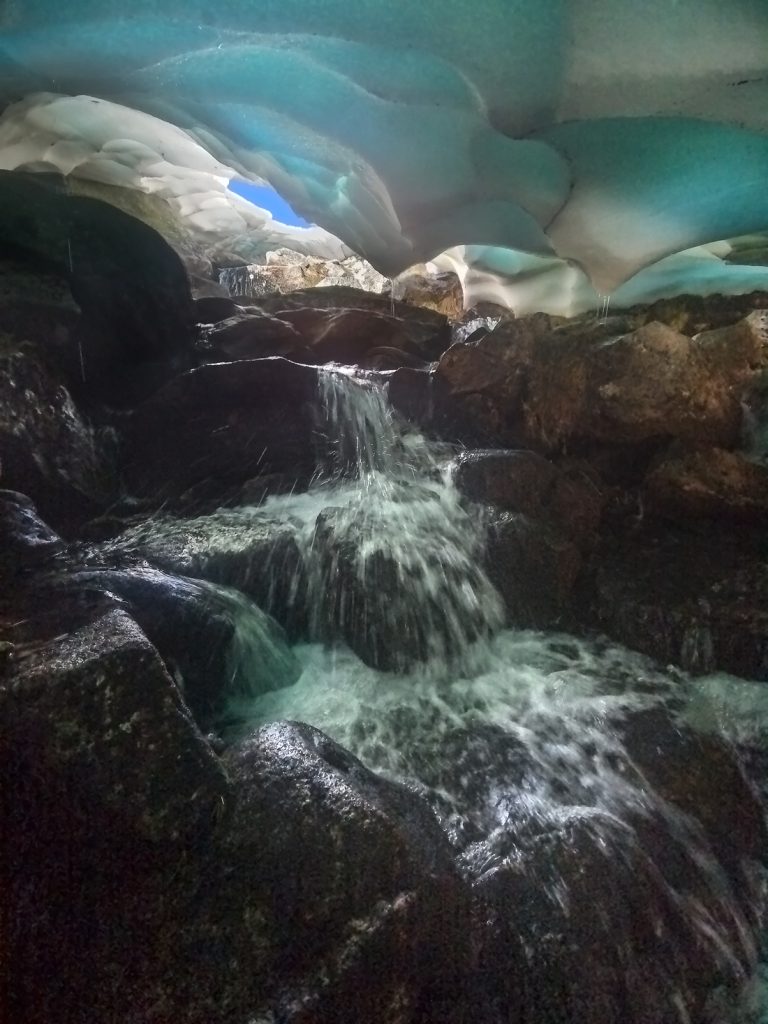
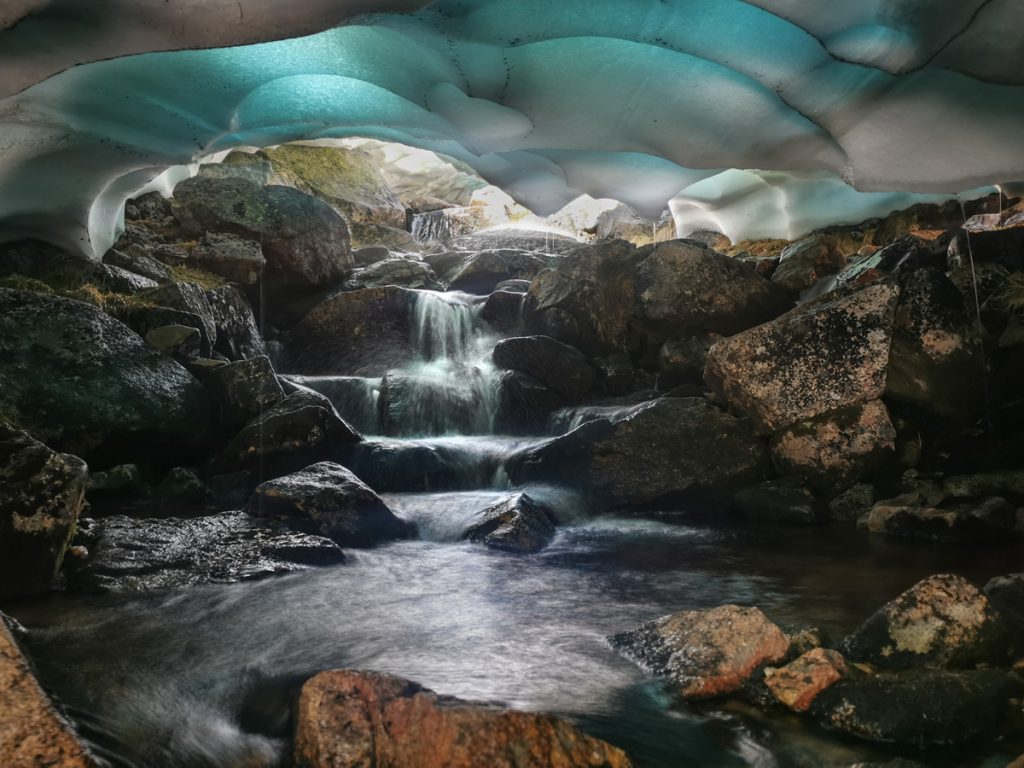
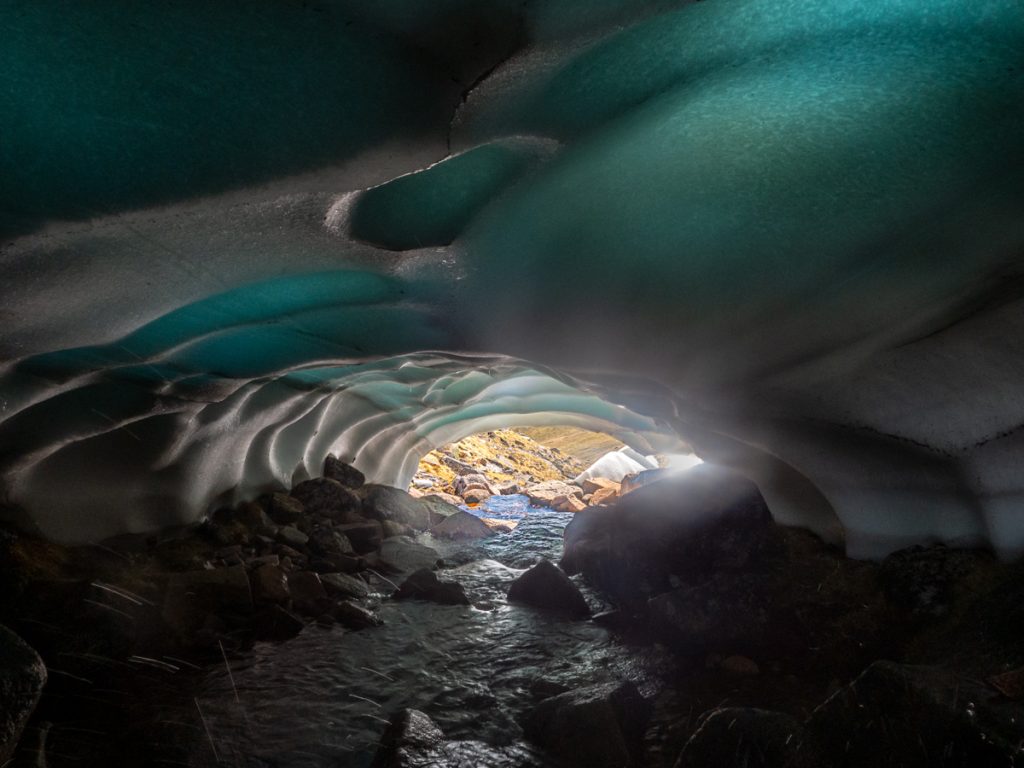
Further along there a hole had formed in the ceiling providing a burst of sun into the tunnel
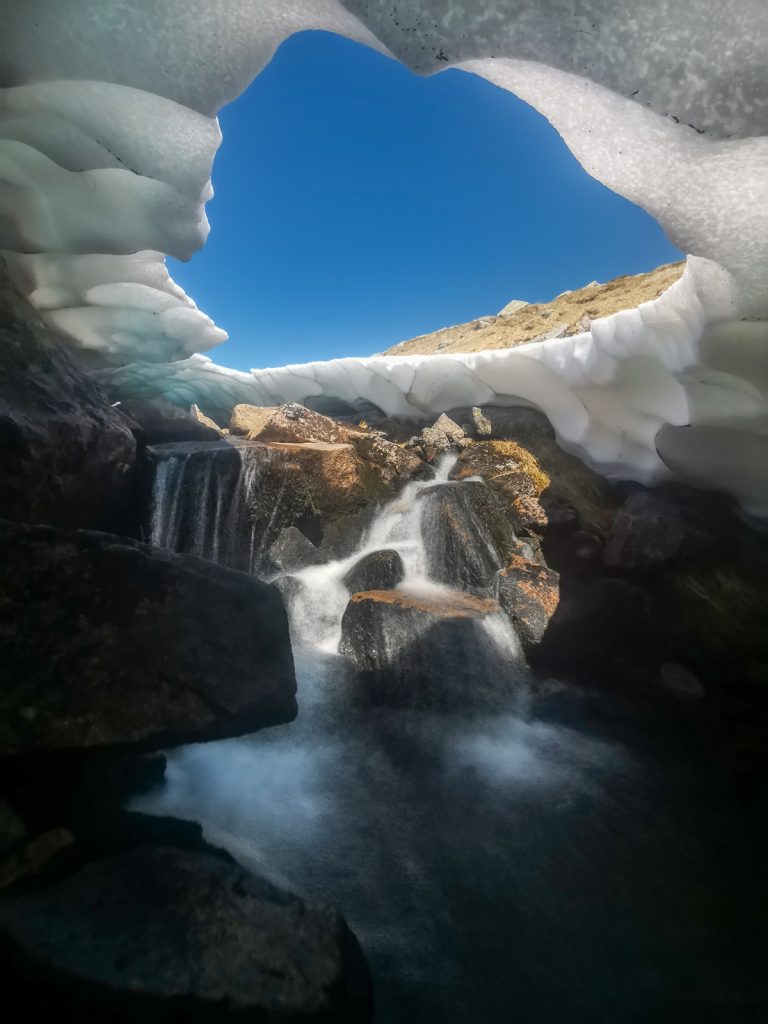
I exited blinking into the sunlight. Phew, that was an eye-popping wonder. I pondered the luck of visiting today: a couple weeks earlier it’s possible that the tunnel wouldn’t have eroded outwards to allow sufficient space to access, and heading in to summer I’d doubt it’d survive without a fuller roof collapse for much longer.
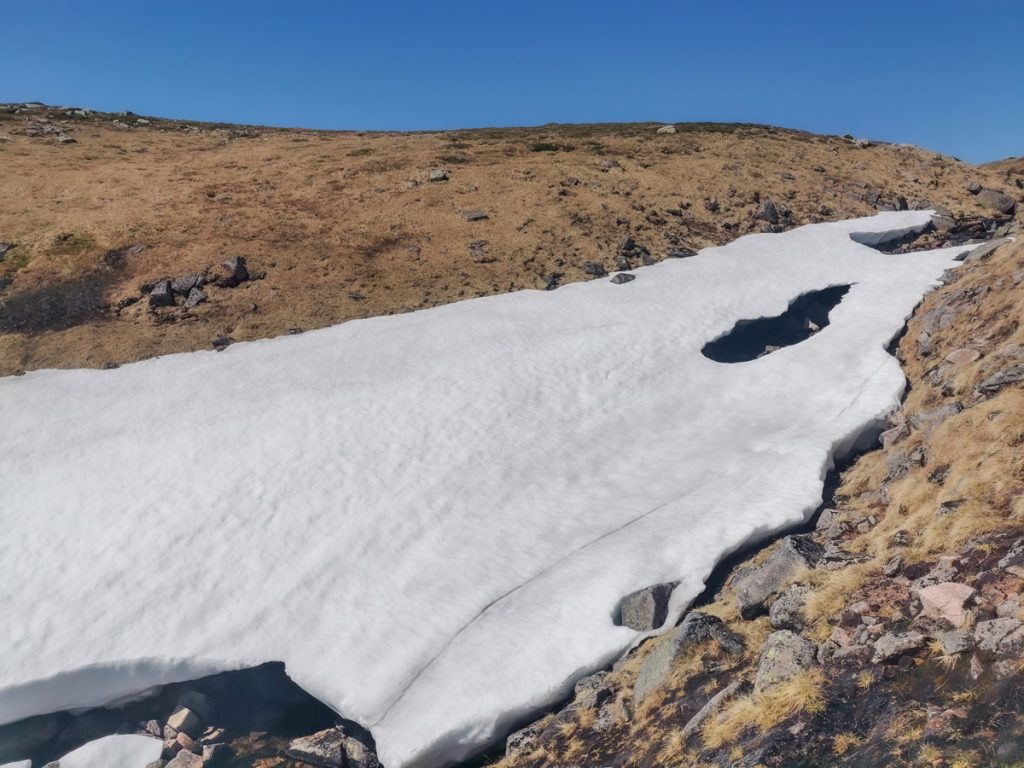
Appetite whetted, I resolved to definitely check out Coire Boidheach which lies slightly higher, and reroute past The Stuic which has some burns flowing north west that might also hold snow tunnels.
Heading onwards, I could see across to Cairn Bannoch where we’d recently ascended to the left of the remnants of it’s snow corrie.
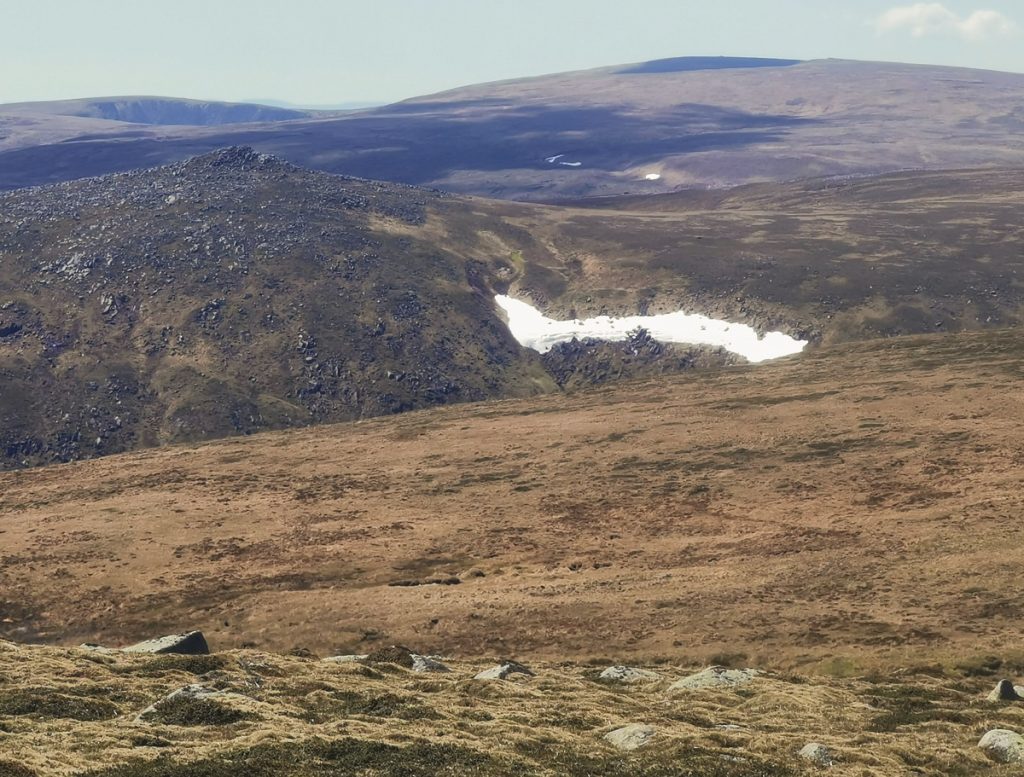
There’s a persistent snow patch at NO 24100 84635 that last each year, a hollow on the gently-sloping boggy ground at the head of the coire. It has no stream flowing out of it, but it did have chilling deer.
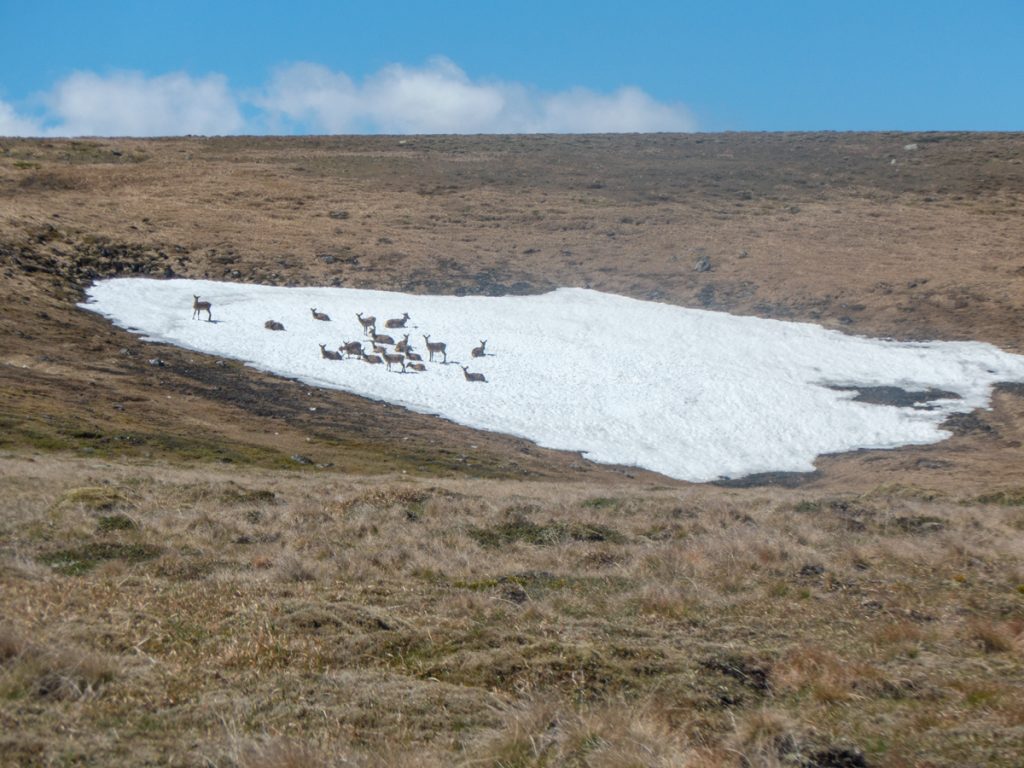
Over the brow of the coire I could see the next target clearly, and what looked like evidence of our excavated snowhole from march.
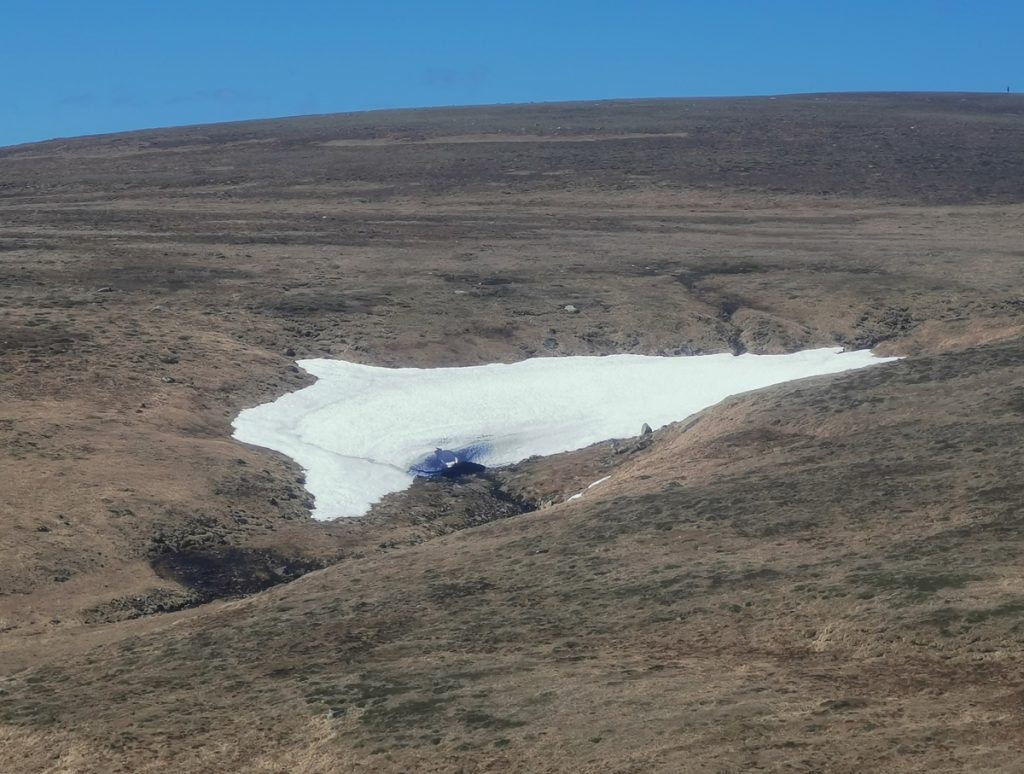
Yikes .. the snowhole in march had been excavated above the stream, although I suppose it would likely have been frozen at the time. In the sparkling of the stream, a straight line caught the eye: my friend’s lost ice axe. I had thought at the time it may have been buried by our excavation and not dropped; it had now melted out into the stream, and although a bit rusty was still usable. On one hand, happy to recover the loss for him, on the other a groan for the extra weight to be carried, and looking like a complete plum with it attached to my rucksack in summer.
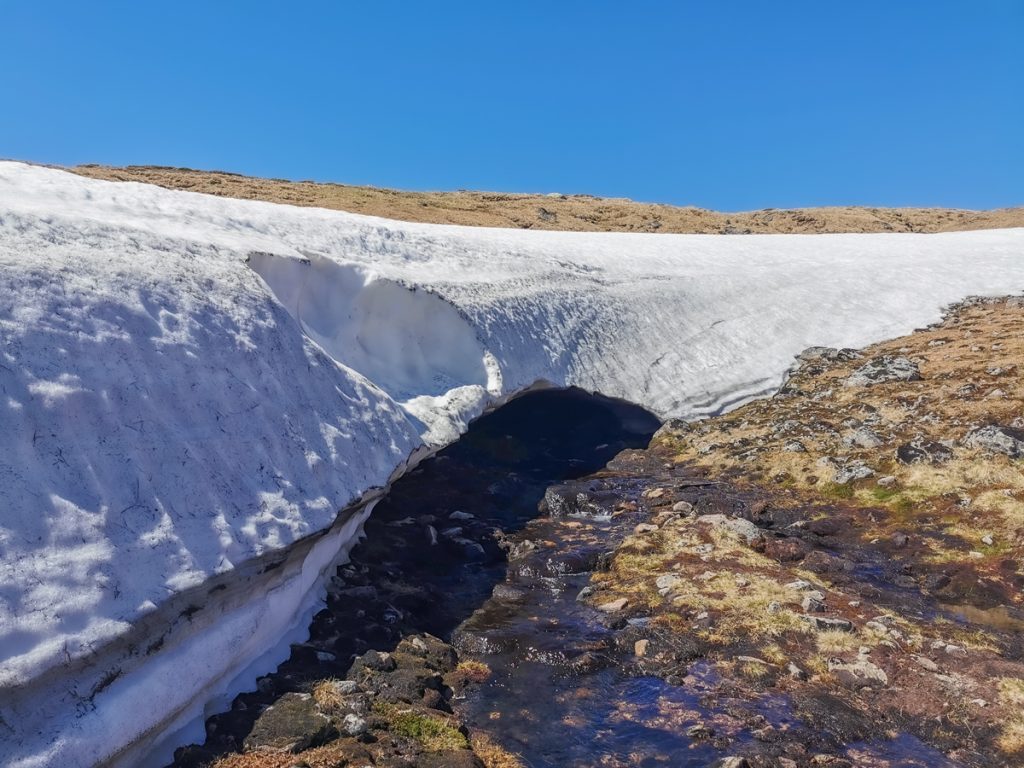
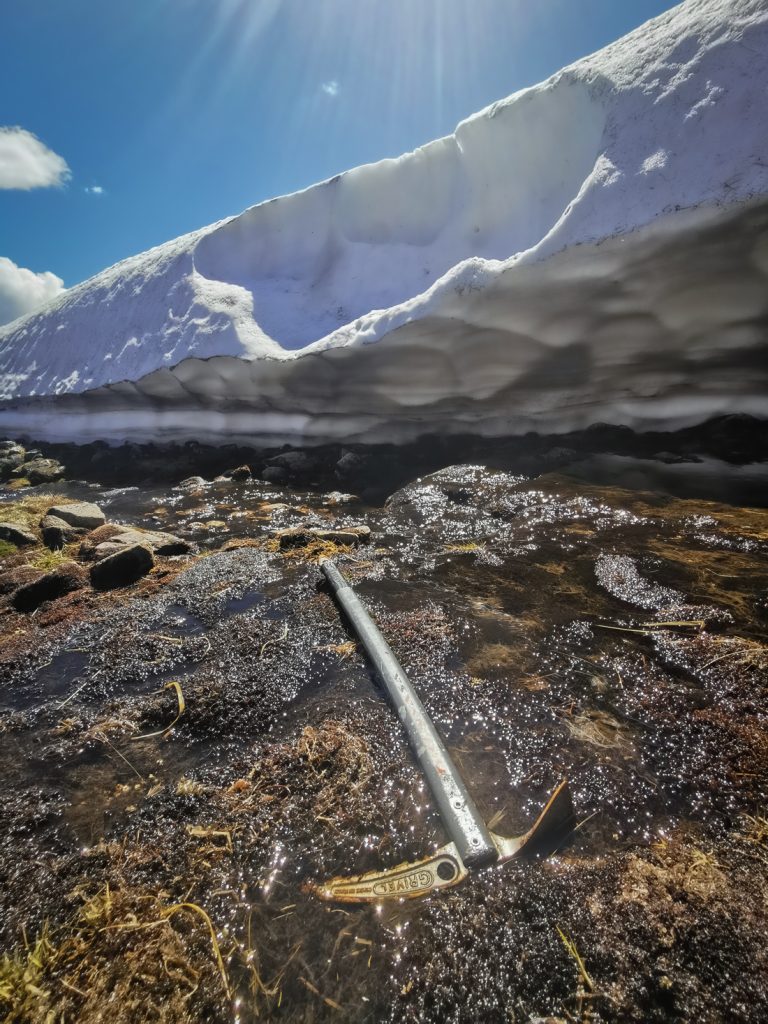
The opening here was very low, the depth of snow above a lot thicker making it gloomy. Oddly, every few minutes the tunnel would exhale fog from the depths.. I didn’t fancy exploring much into this one.
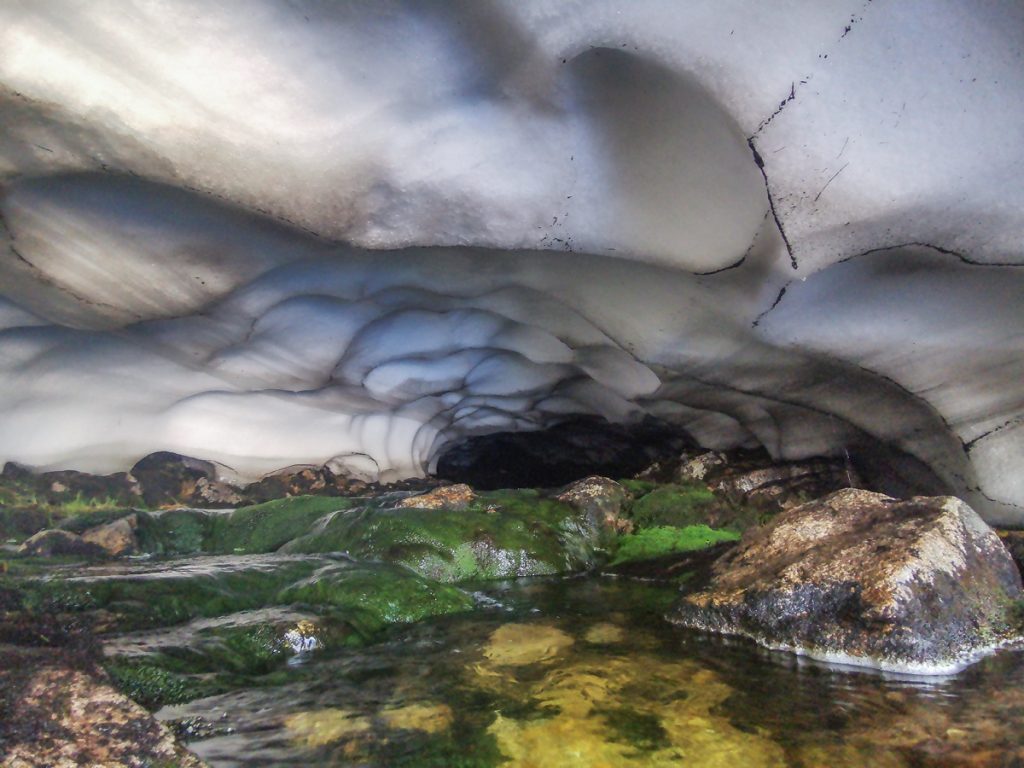
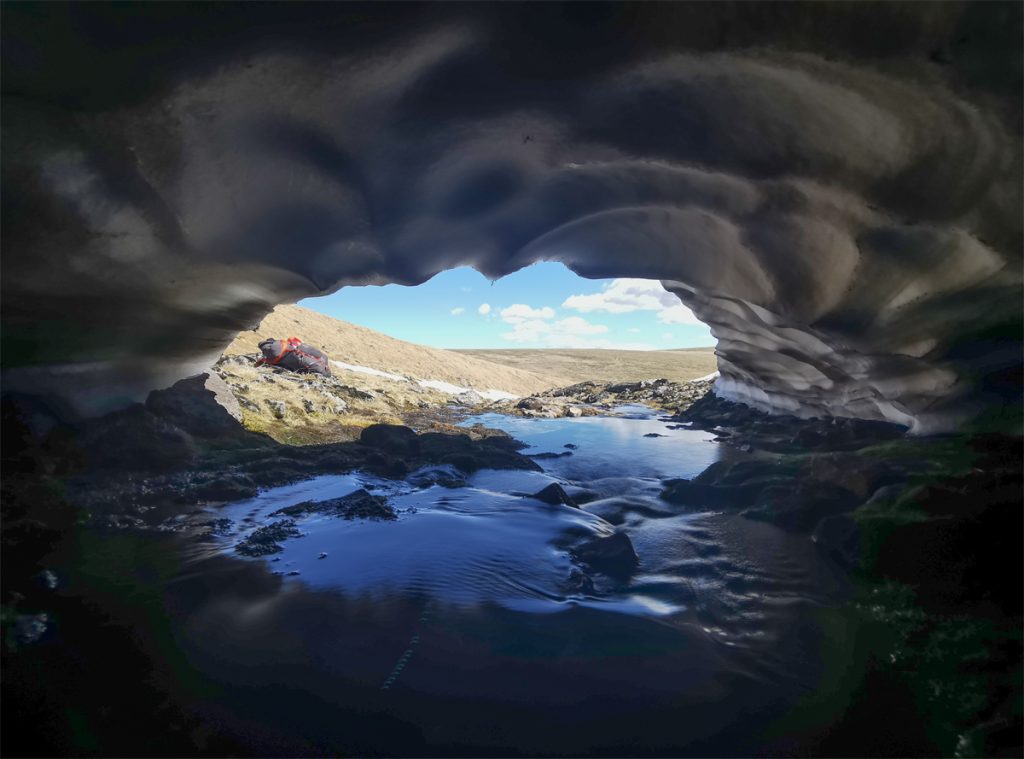
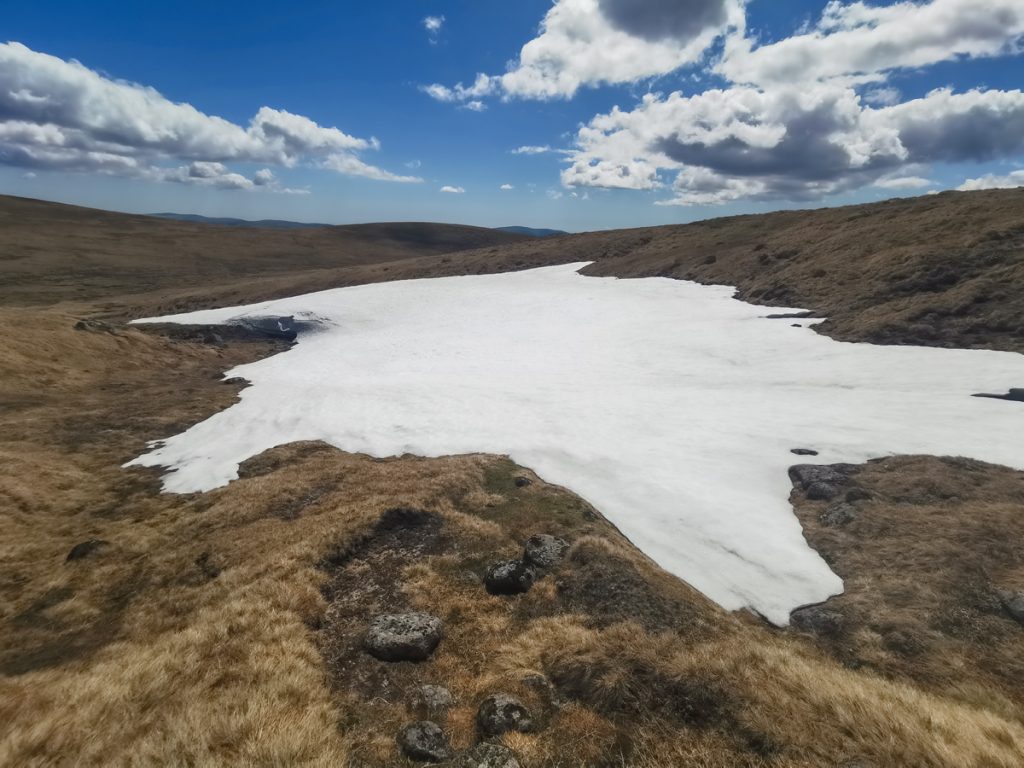
Things were a bit better at the upstream end and I had another look into it
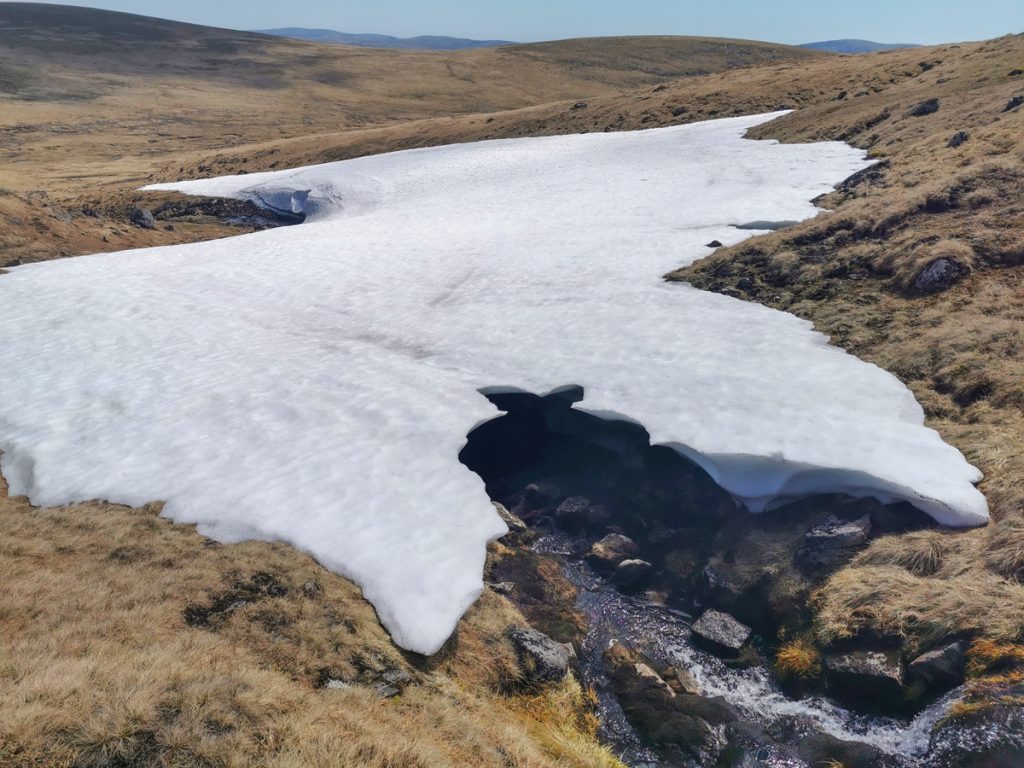
The thickness here was just perfect: an artwork of unusual hues and curves lit by the sunlight filtering through from outside. Some of the pinkish and yellowish hues may be caused by snow algae which can build up over time on long-lying snow.
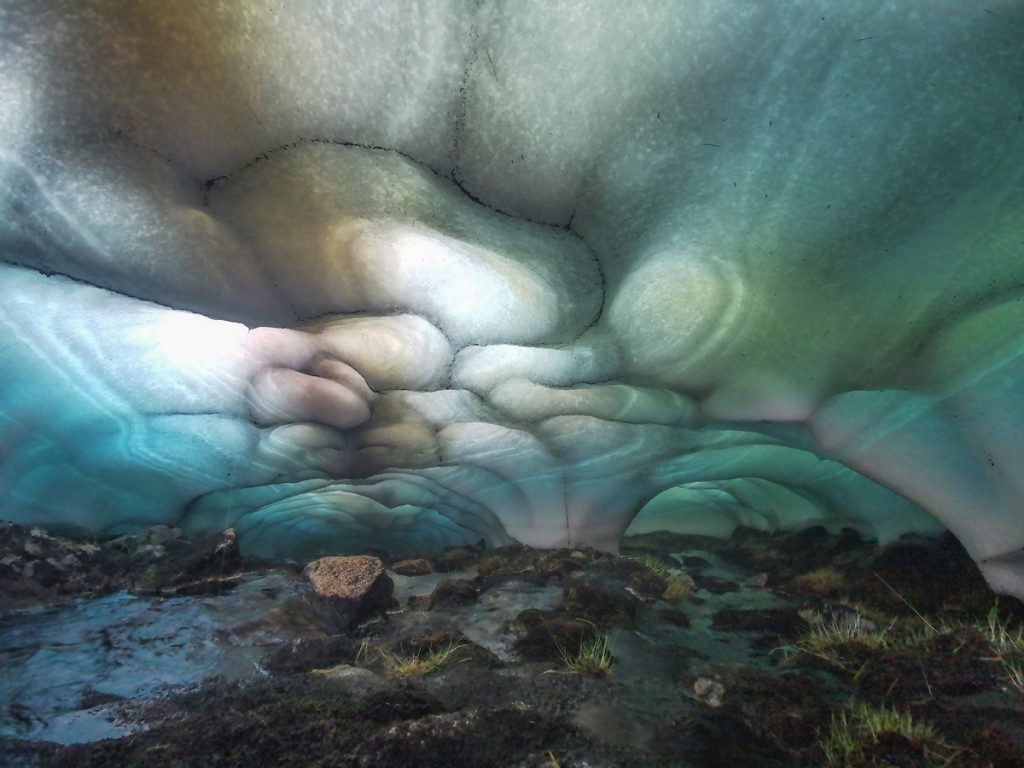
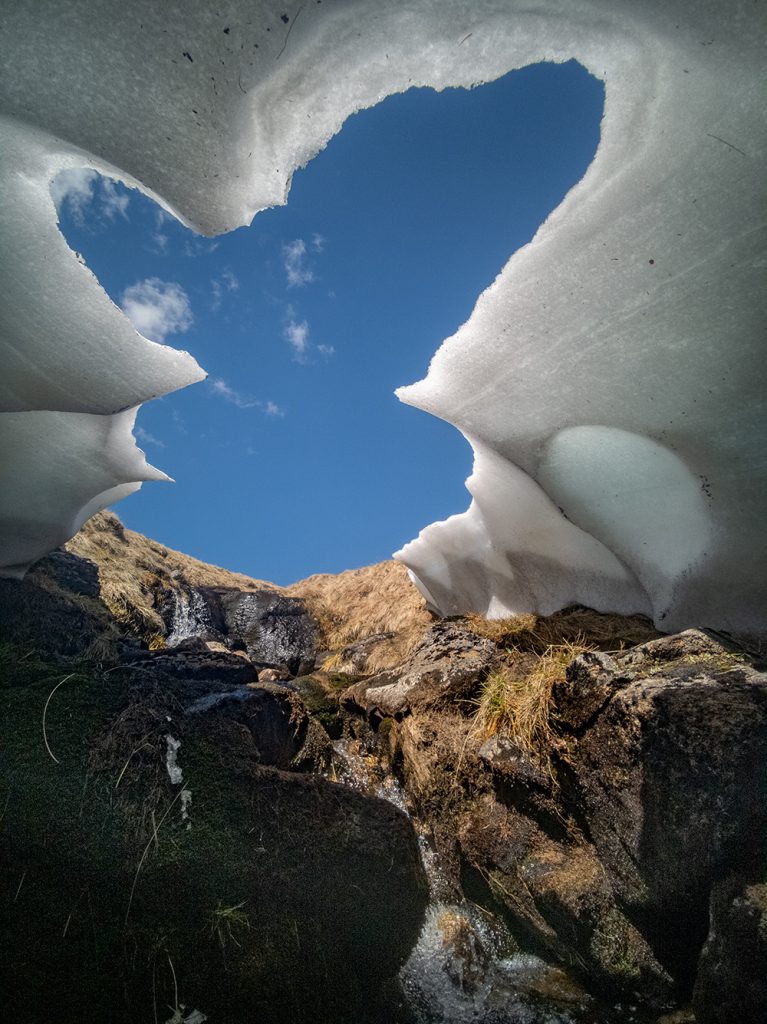
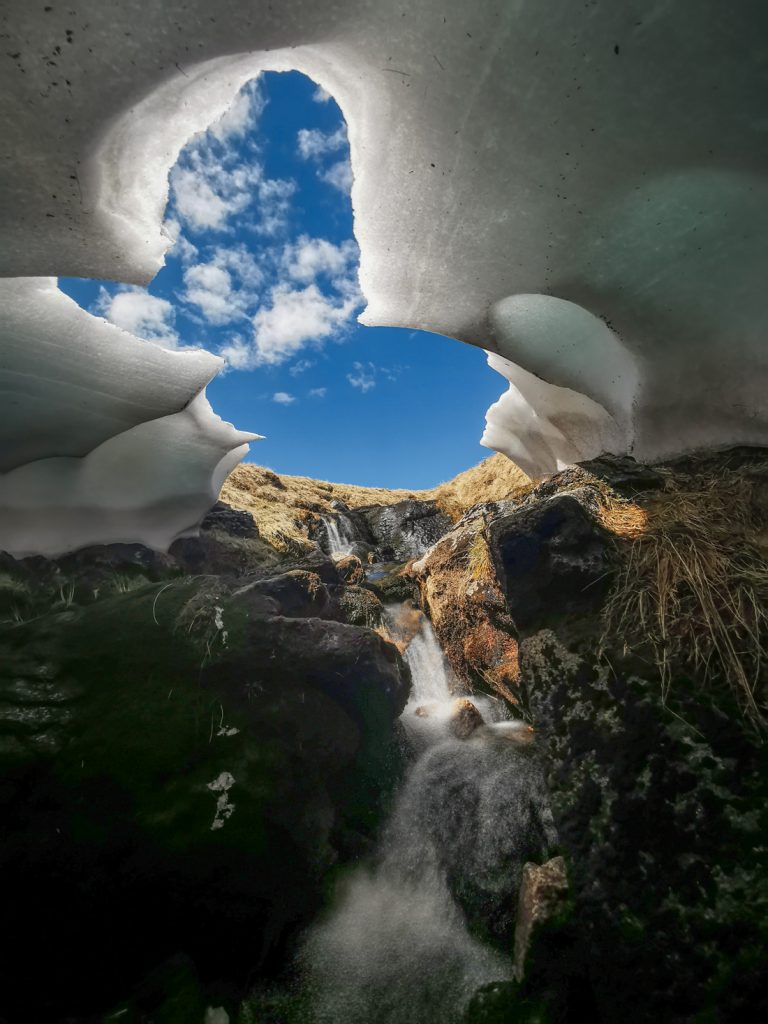
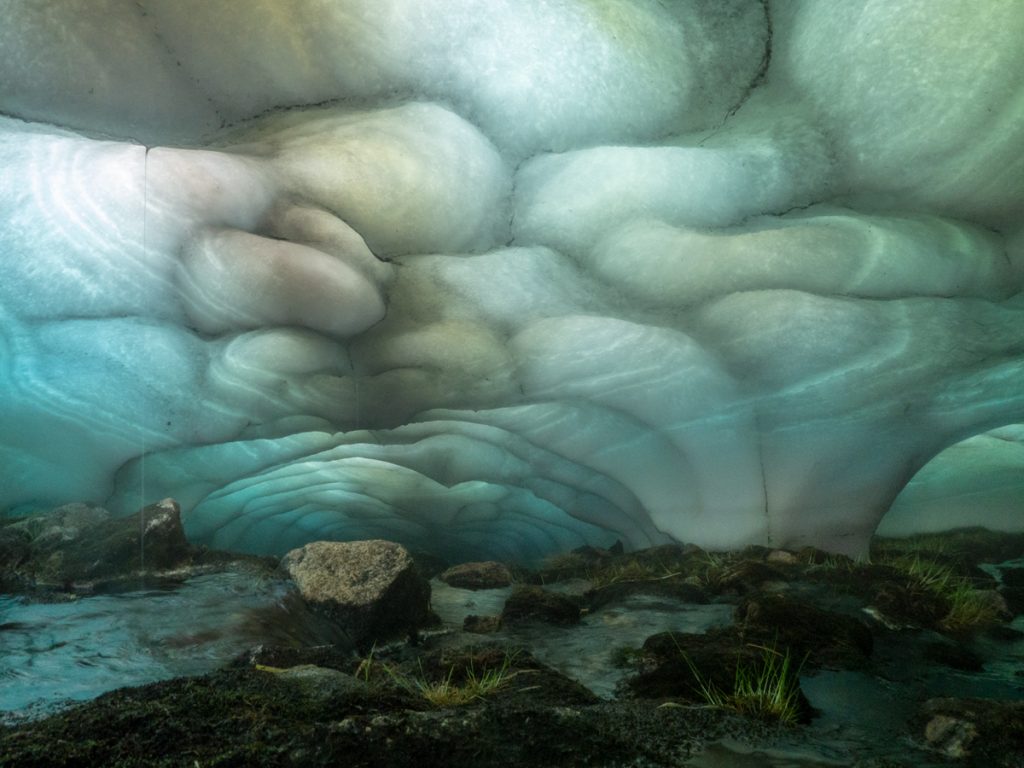
Time to head on to the last snow patch possibility near The Stuic
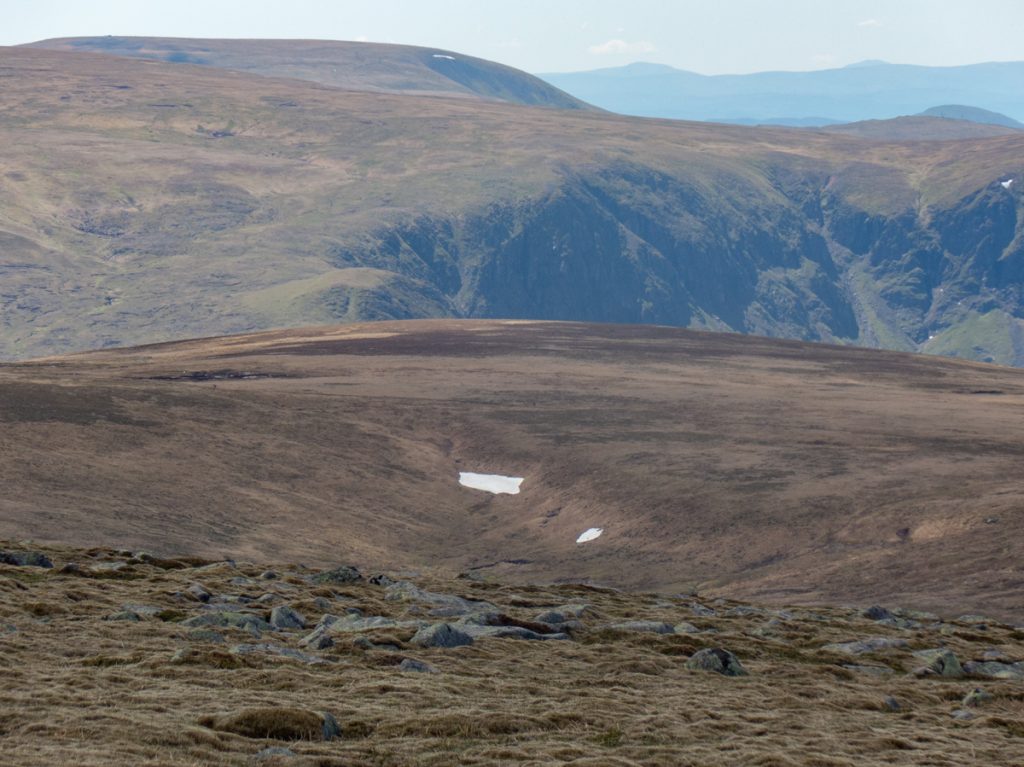
Looking across between Cairn Bannoch and Carn an t-Sagairt Mor where a stream gully holds some snow
Rounding The Stuic you get a nice view of it’s lochans, 3 of the 4 which I visited specifically back in May of 2021 when there’d been a late burst of snow.
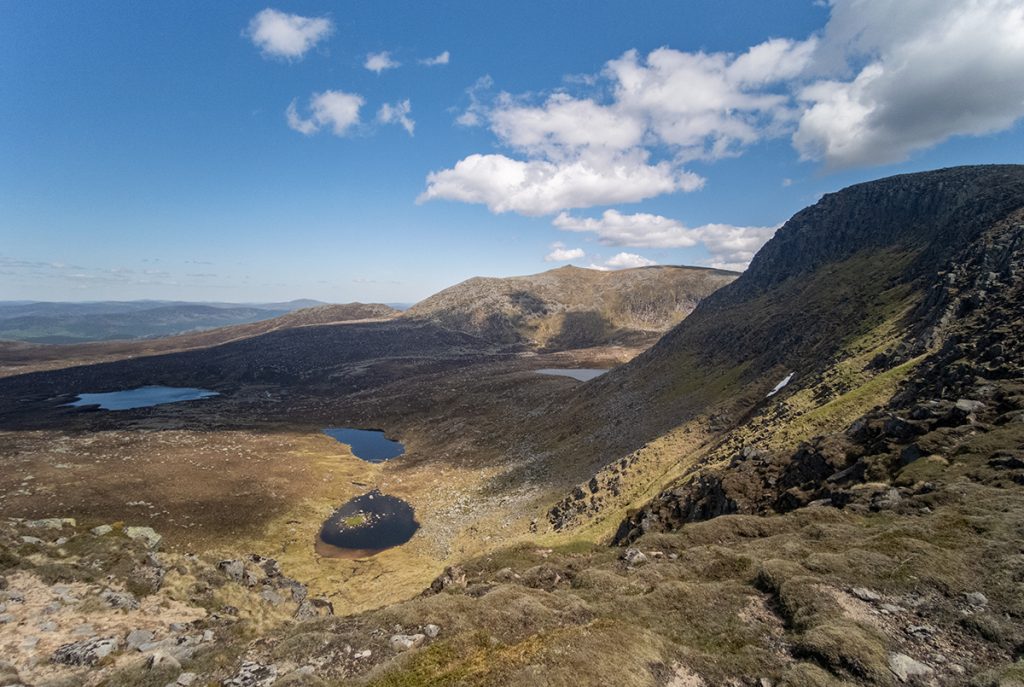
On arriving at point 1003 where the Allt a Choire Dhuibh begins, there was only a small scrap of snow however I’d decided to finish at Ballochbuie so may as well head down from here.
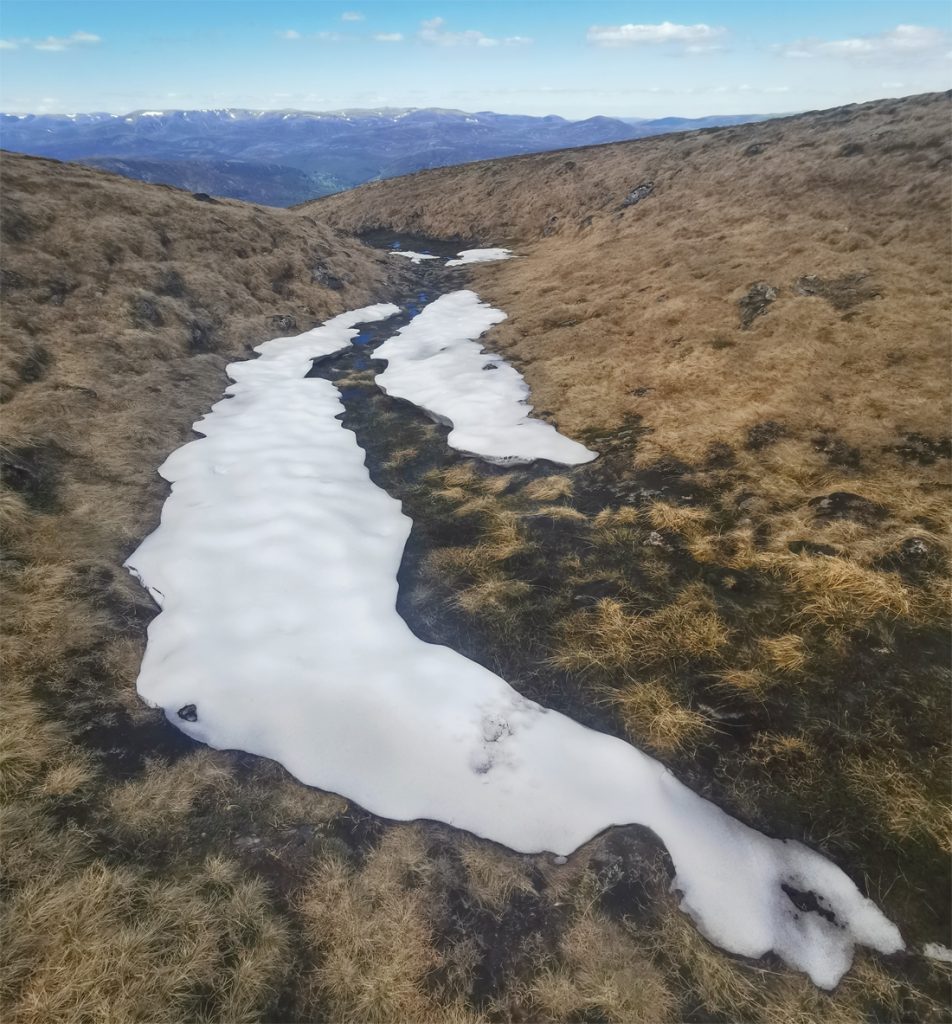
A bit further down where it steepened and narrowed, it did hold some snow (right on the 950m contour) although with a very small tunnel it couldn’t be explored at all
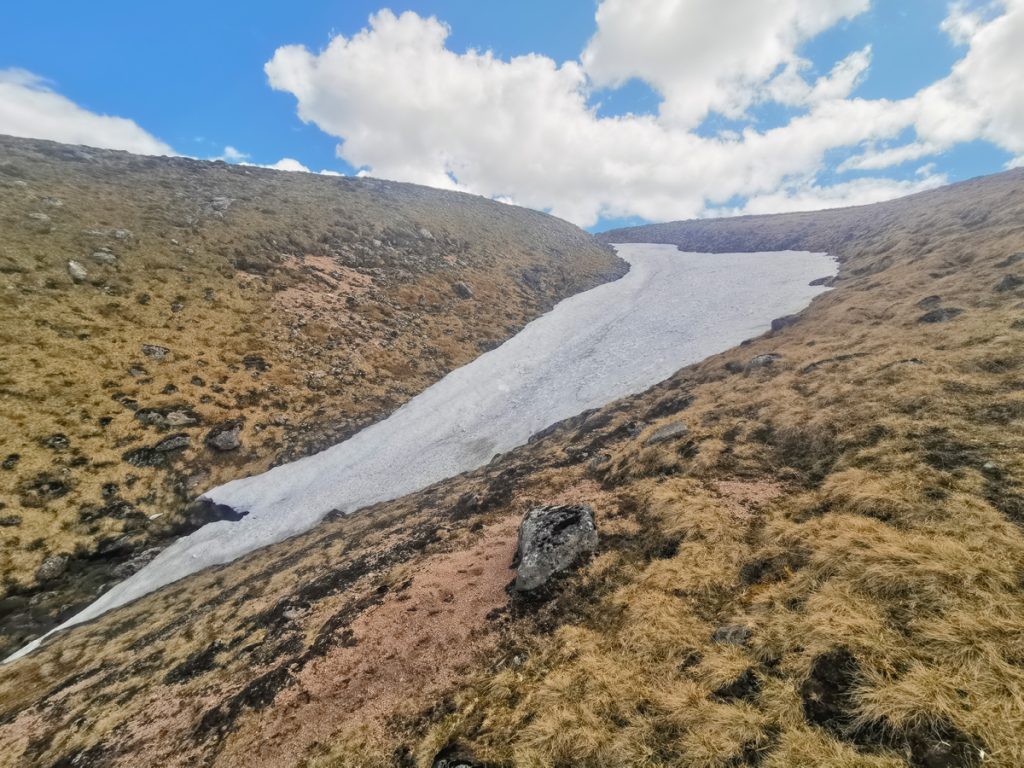
Snow patch further down Allt a Choire Dhuibh
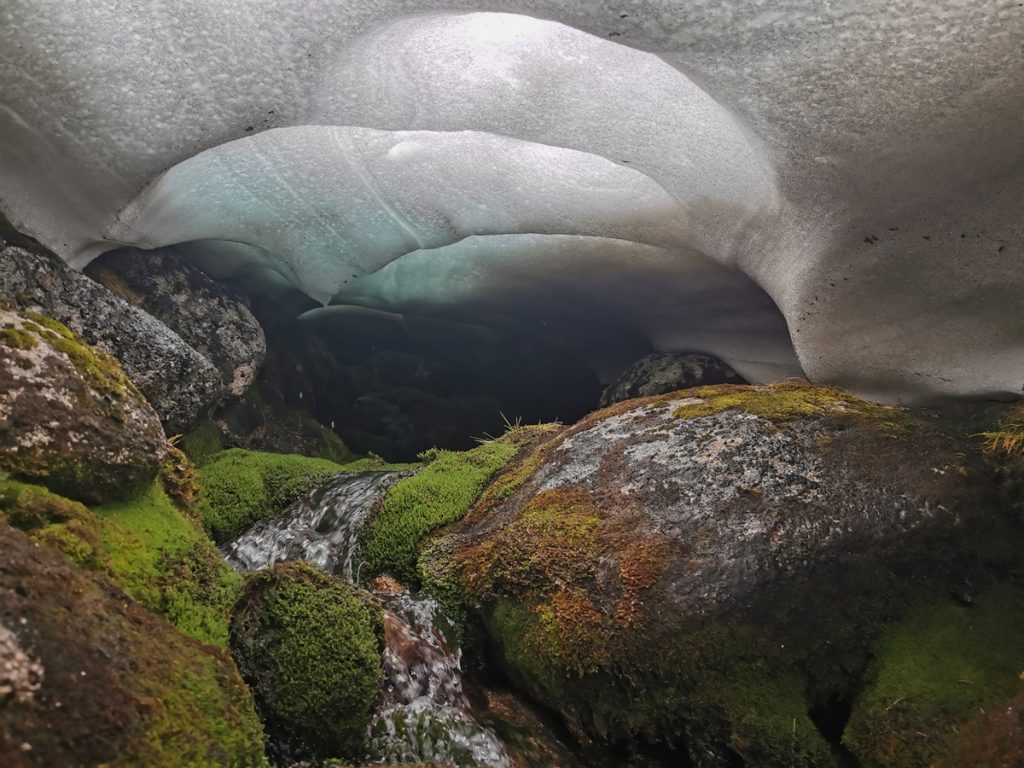
I pondered heading over to the burn that heads from 962 between Sagairt Mor/Beag but I’d had a good innings today and it was time to tramp towards a finish [subsequent checking on sentinel playground showed no snow left there]
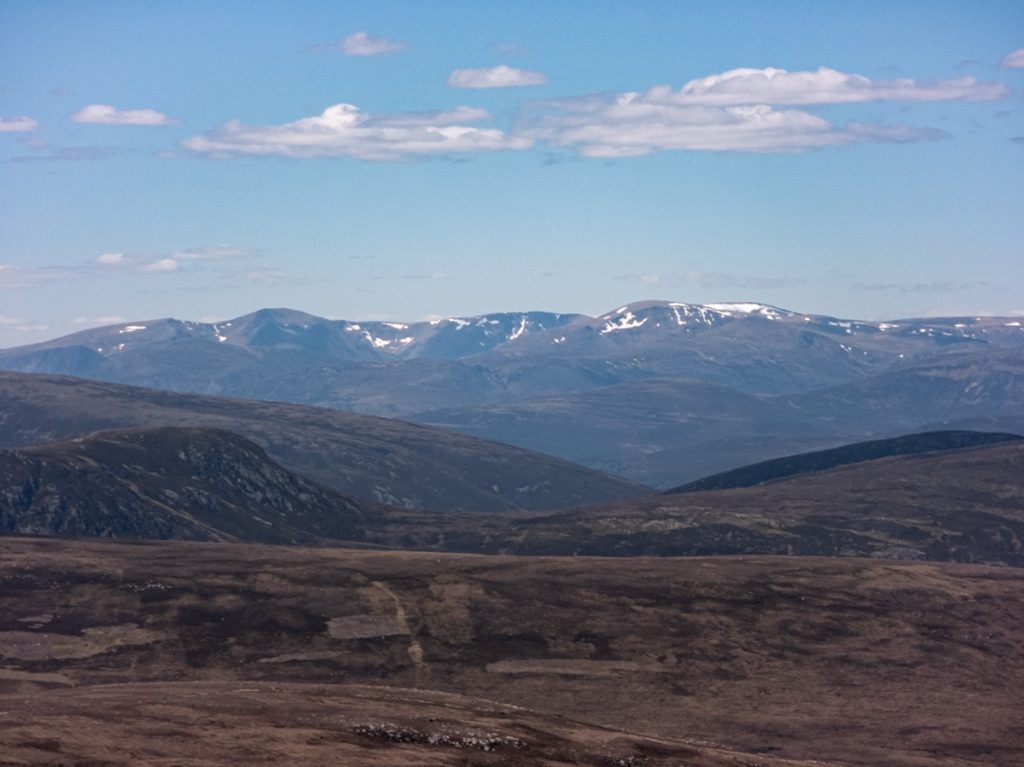
The burn tumbles down through rough heather before mellowing into clear meanders fed by gurgling caochans ready to capture a carelessly placed foot.
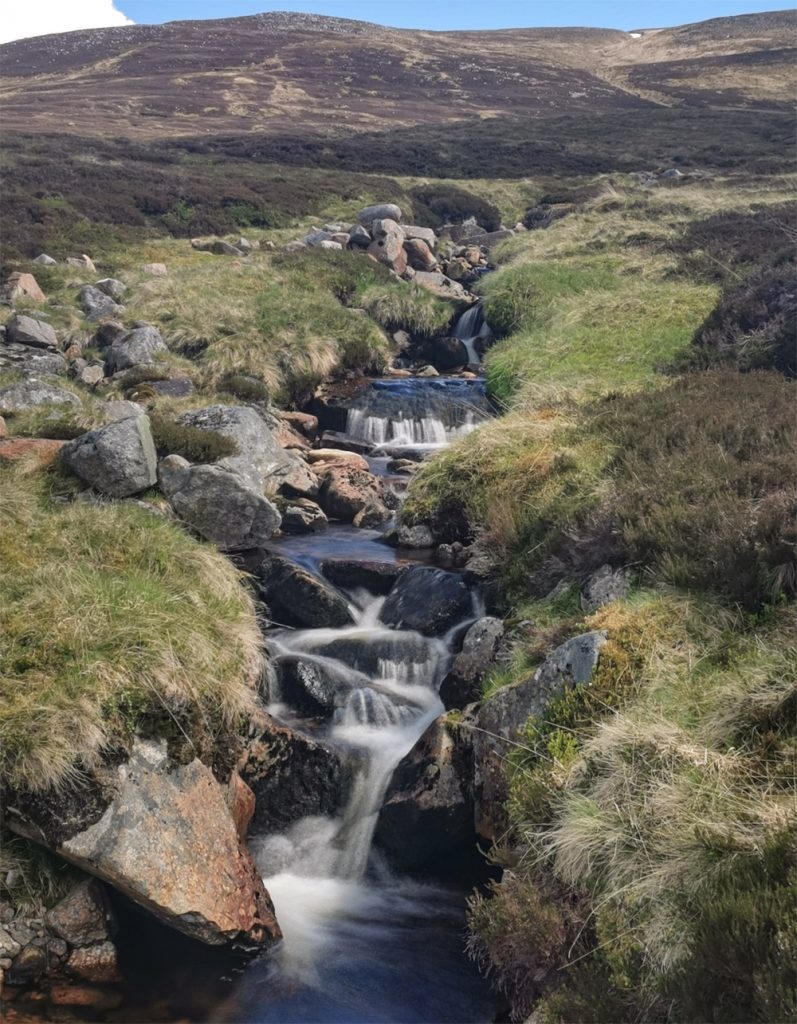
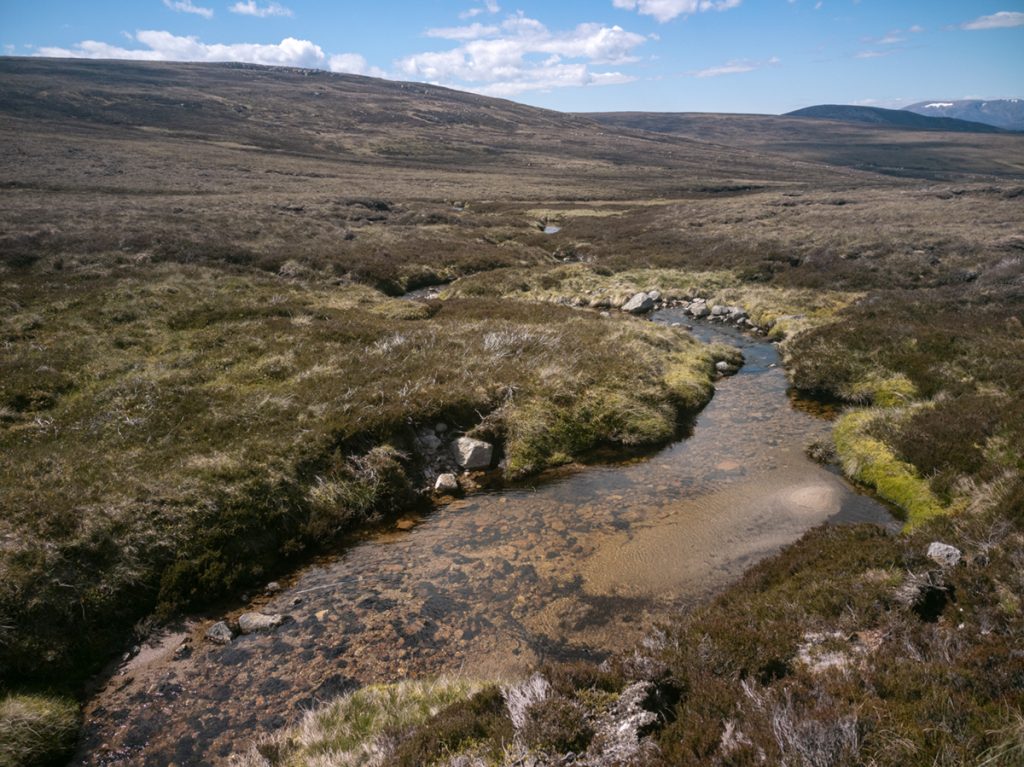
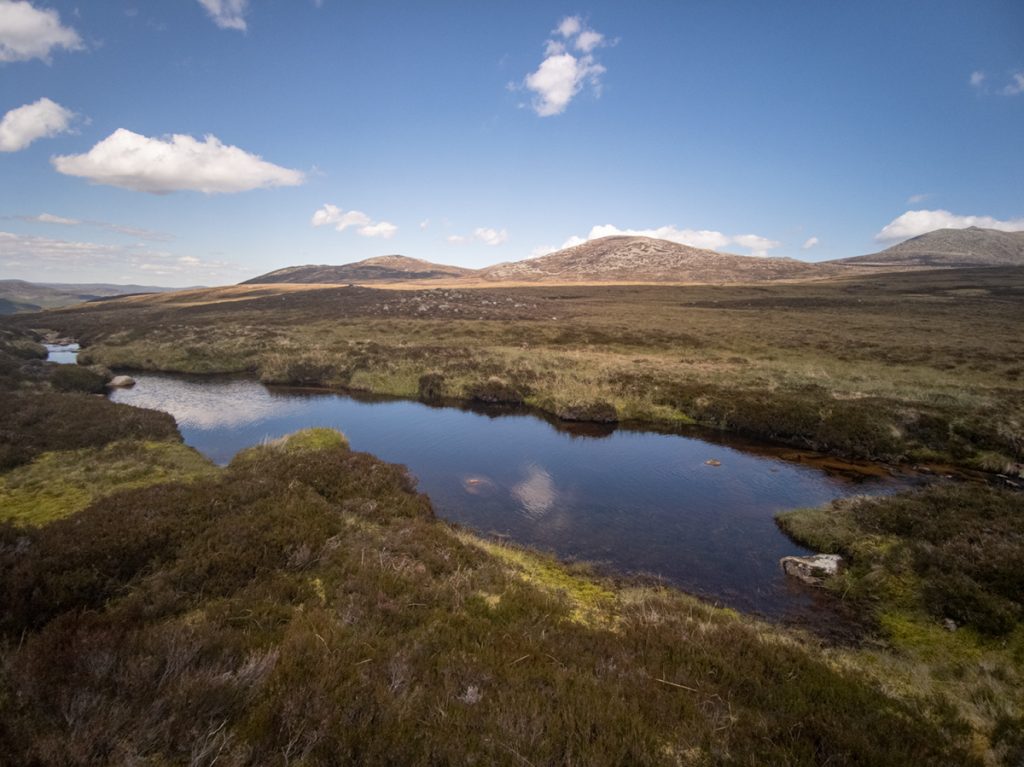
Ballochbuie sweltered and hot feet were glad to rest a while at the Keiloch bus stop.
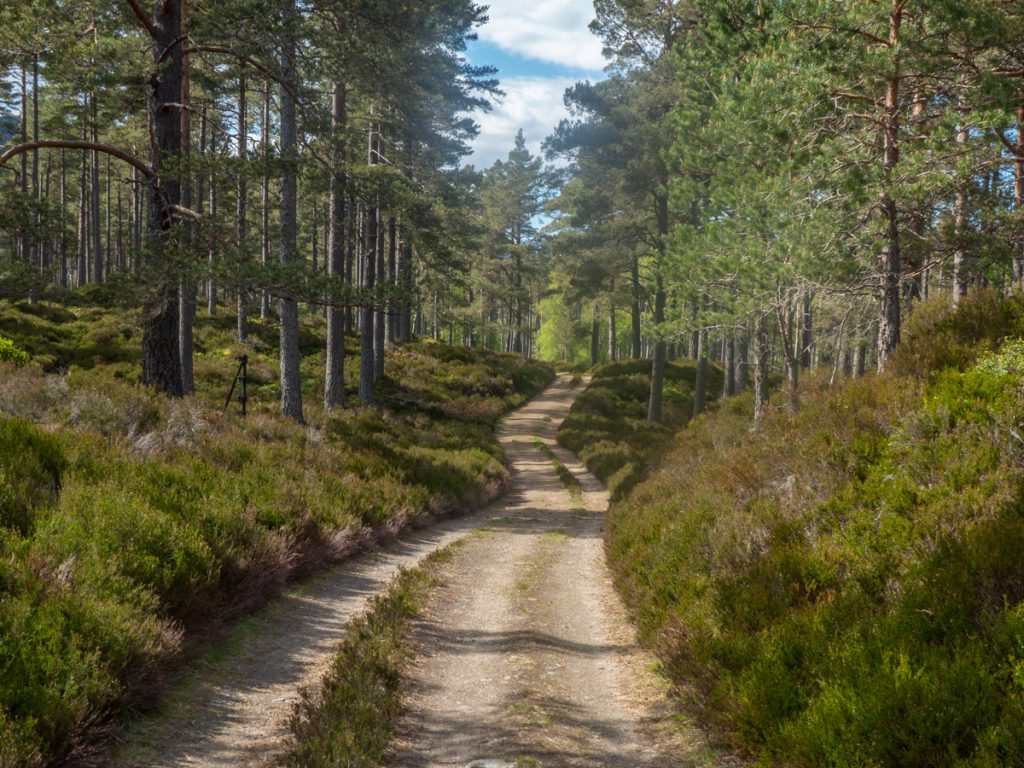
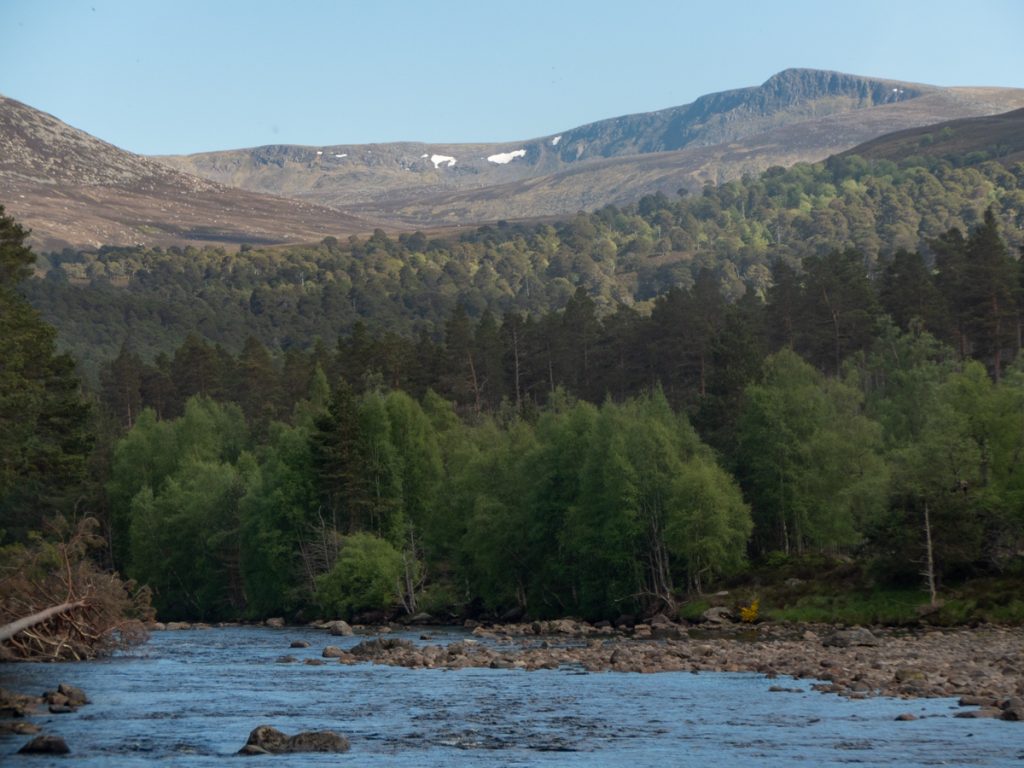
The bus stop wait entertained despite the tourist motorbikes roaring along the road: there’s an ant nest just to the side of the hut, I watched ants hefting some captured insects back home; red squirrels frisked in the trees opposite.
SAFETY WARNING: Exploring snow tunnels is risky, there is danger of collapse and being trapped or crushed by tonnes of dense snow. The terrain where they occur is often steep, slippery and bouldery, and are off the beaten path where you would not get passing help in the event of an incident. Carefully consider taking some common-sense safety measures if entering:
- Does somebody know where you are?
- Closely inspect the structure first
- Consider if there are multiple entrances, which is safest
- Stay close to an exit
- Have somebody remain outside
- Be quiet and mindful: listen/watch for any crumbling or crackling
- Proceed slowly and carefully, don’t bump into the sides, check your hand and foot placement